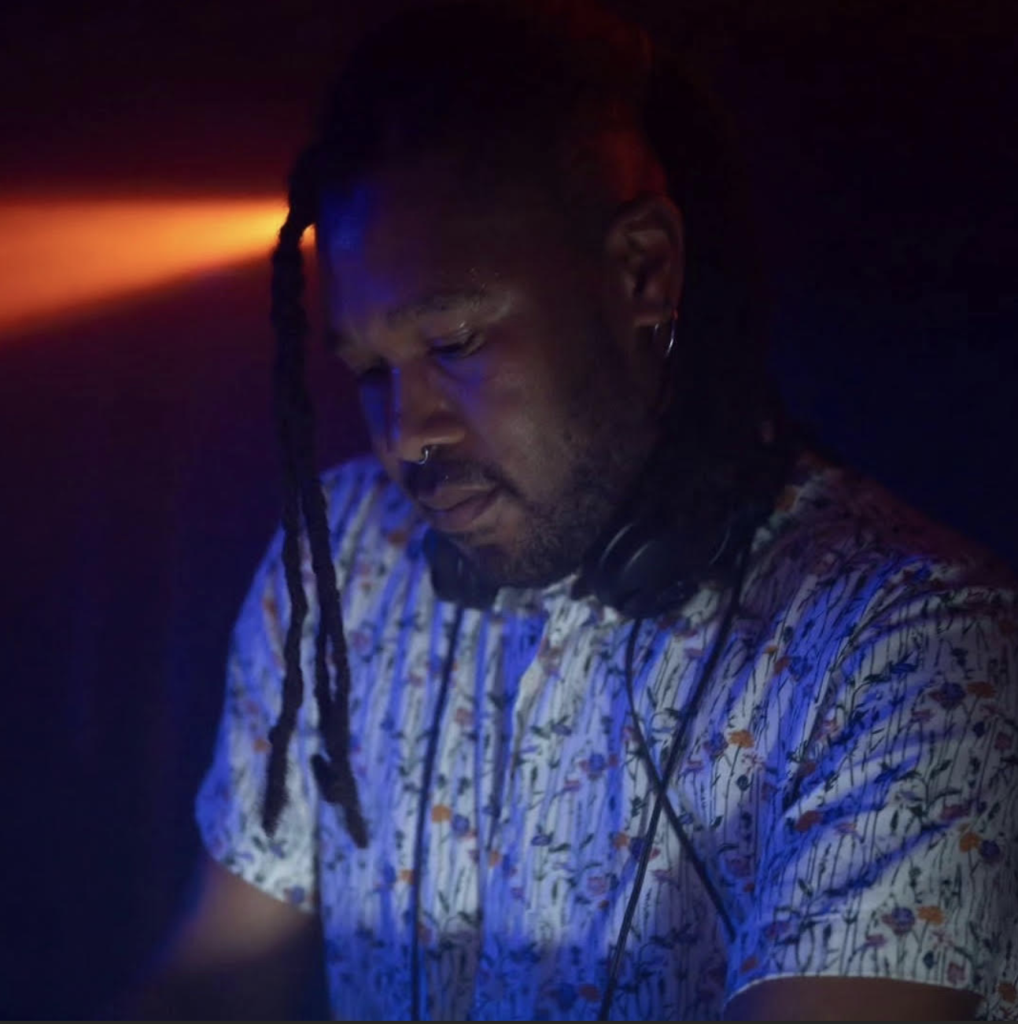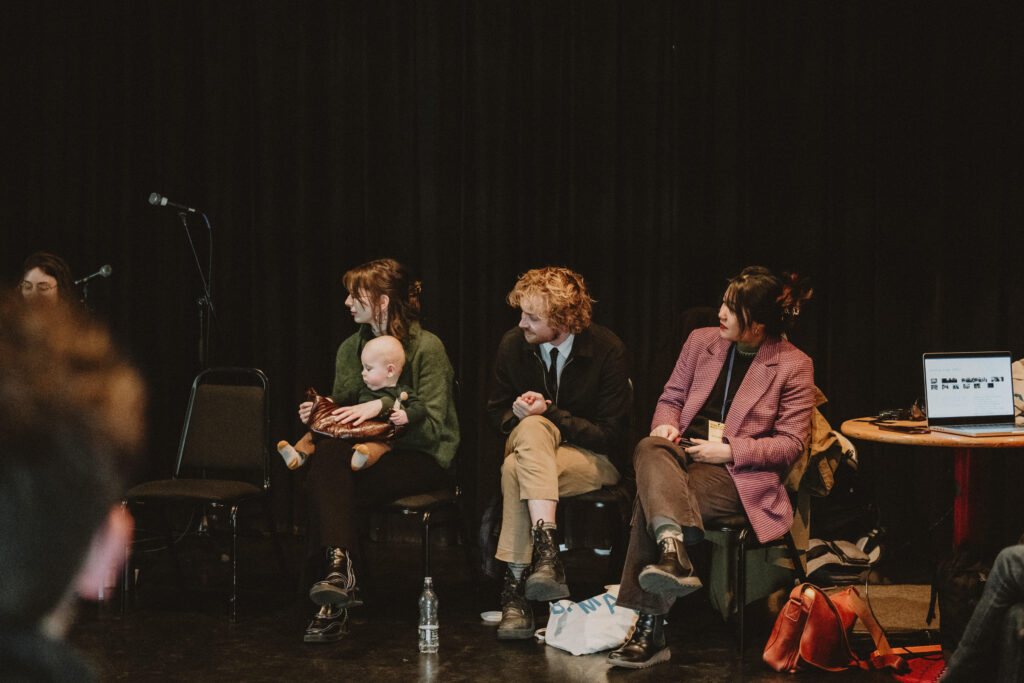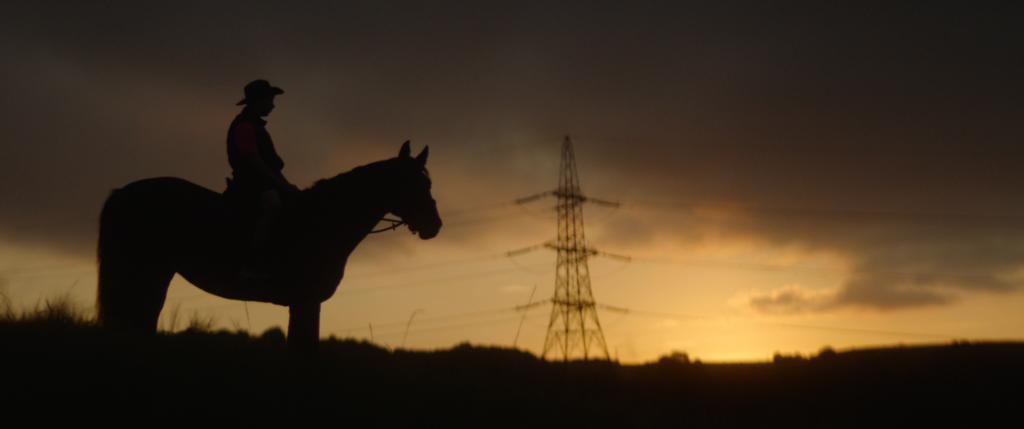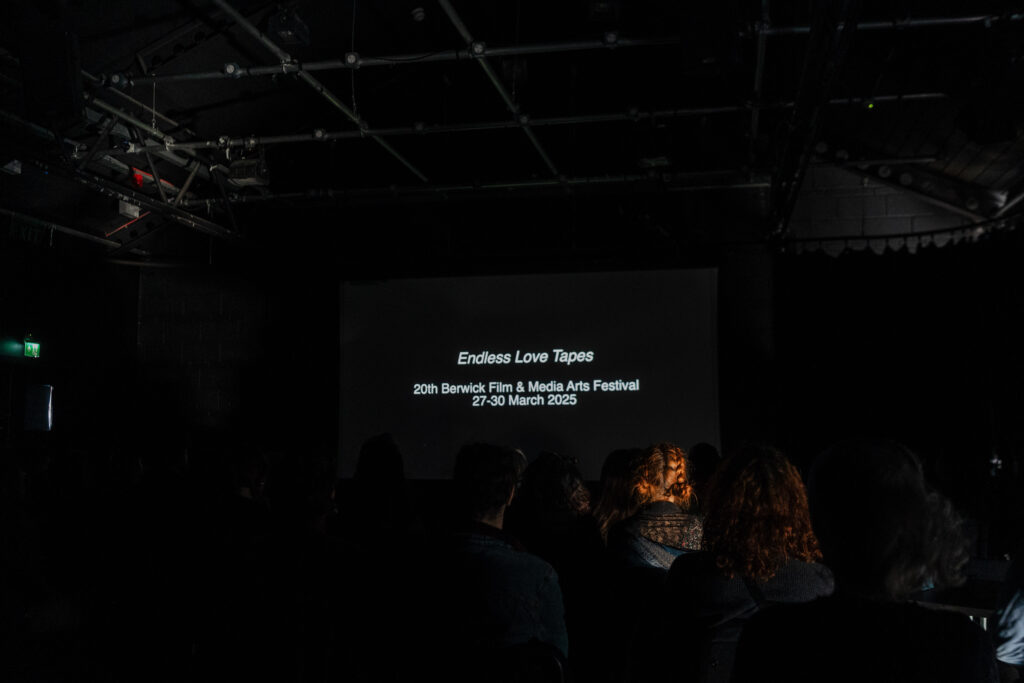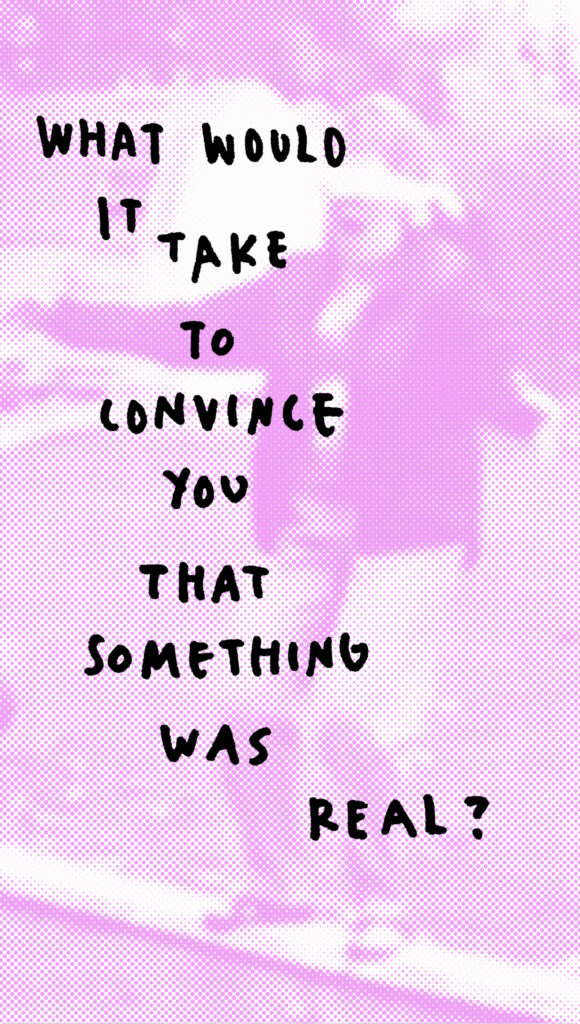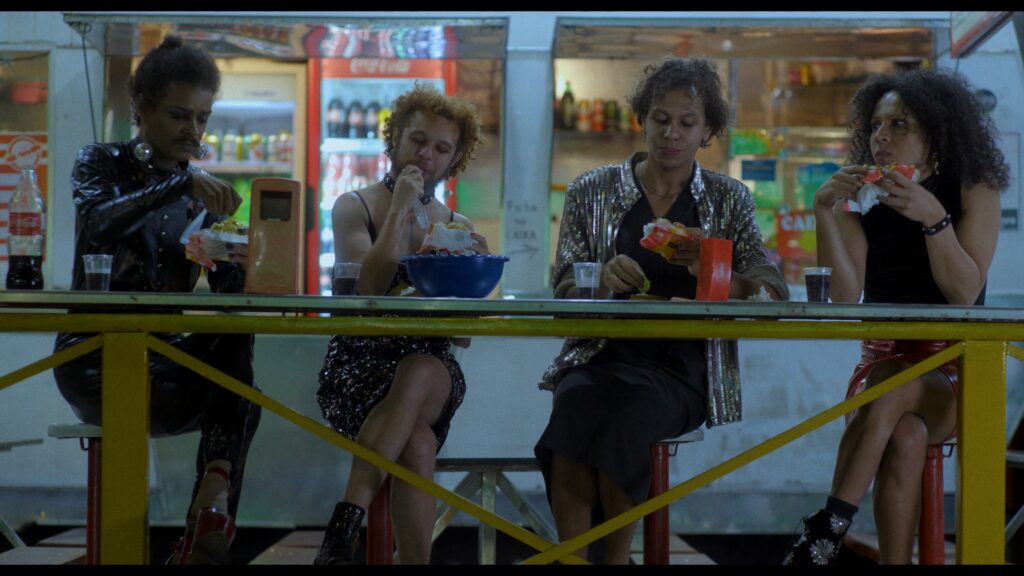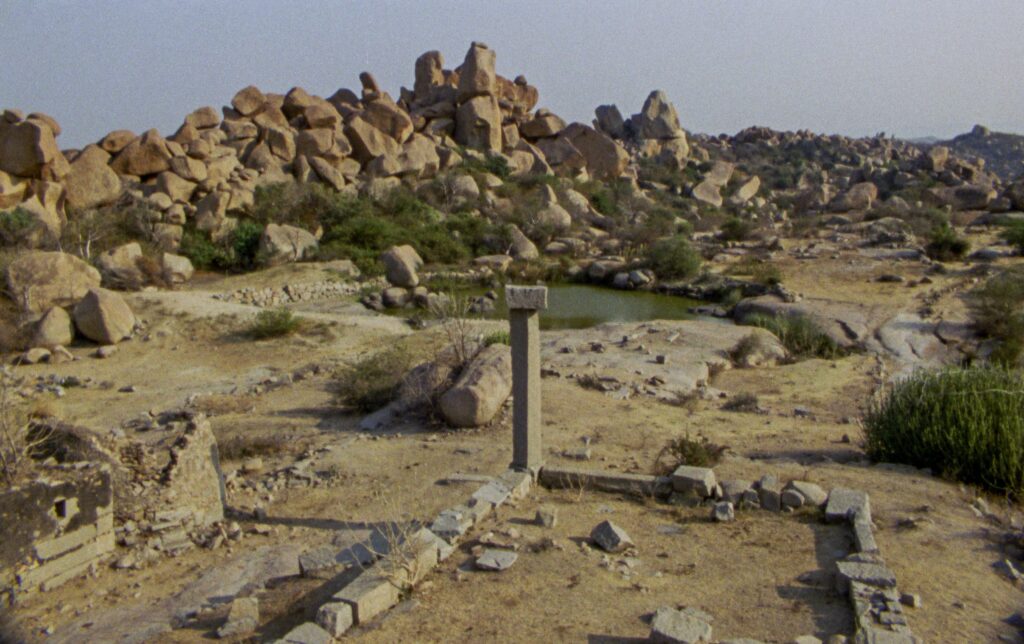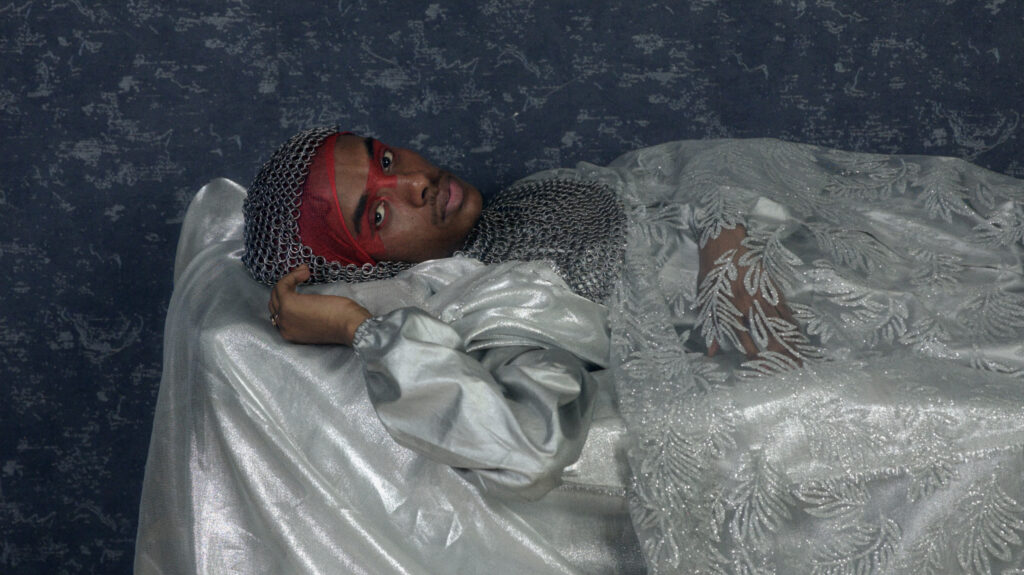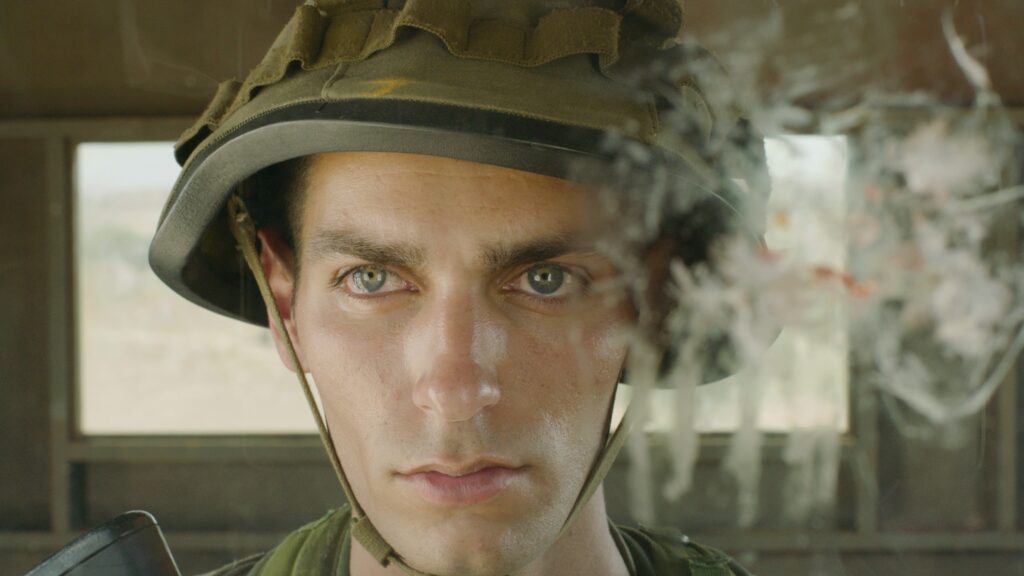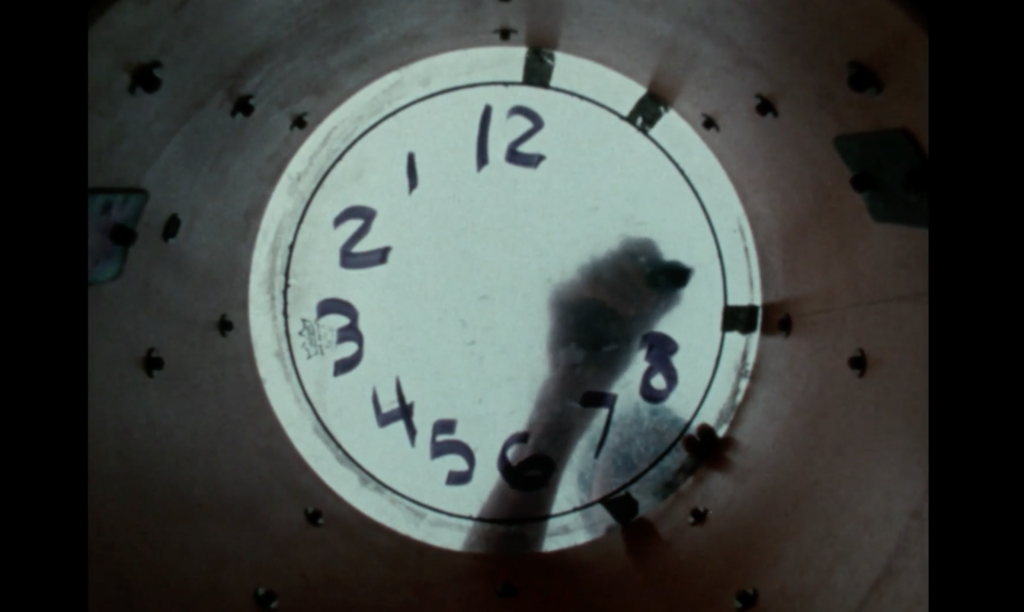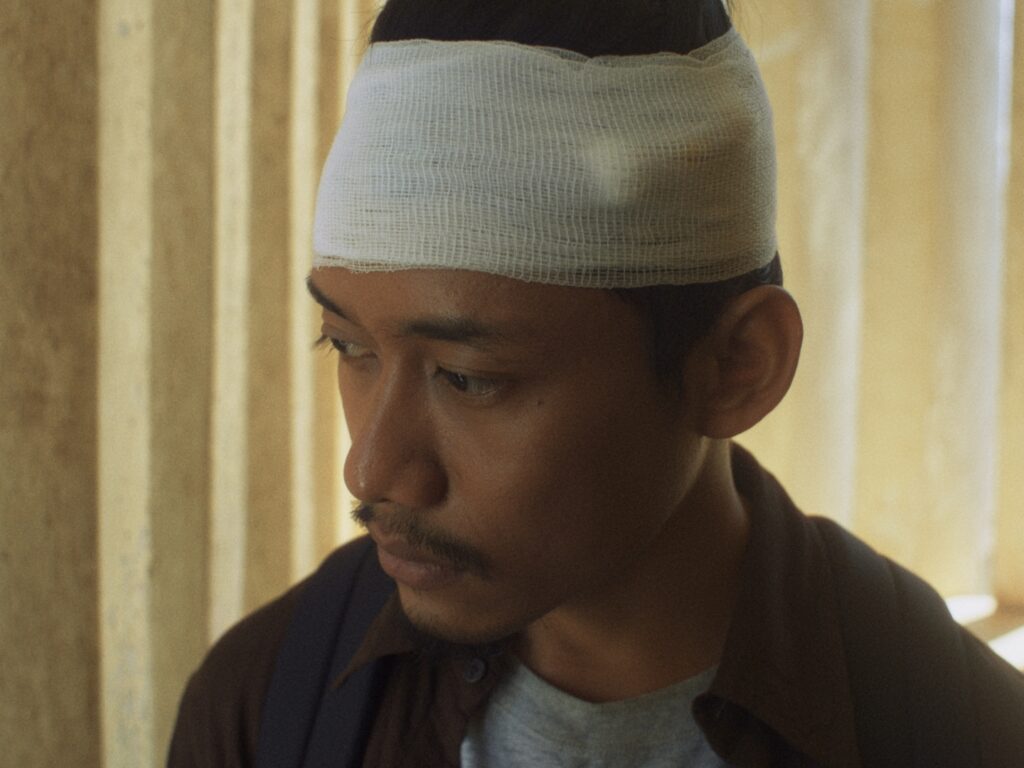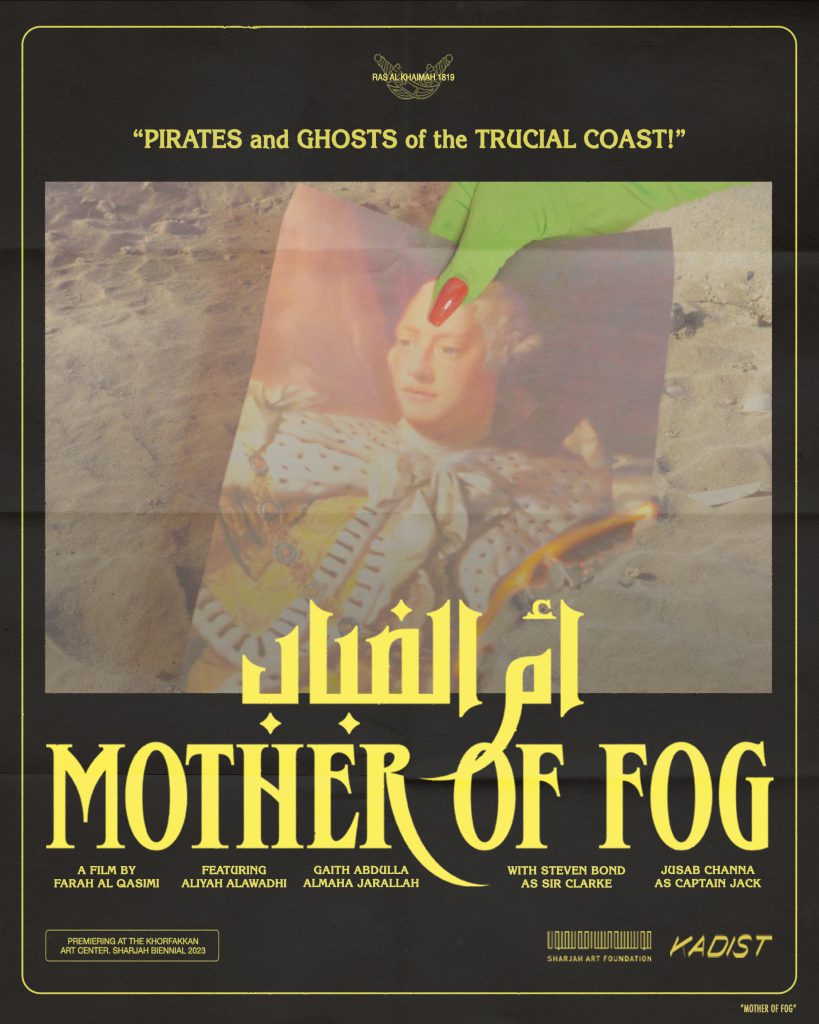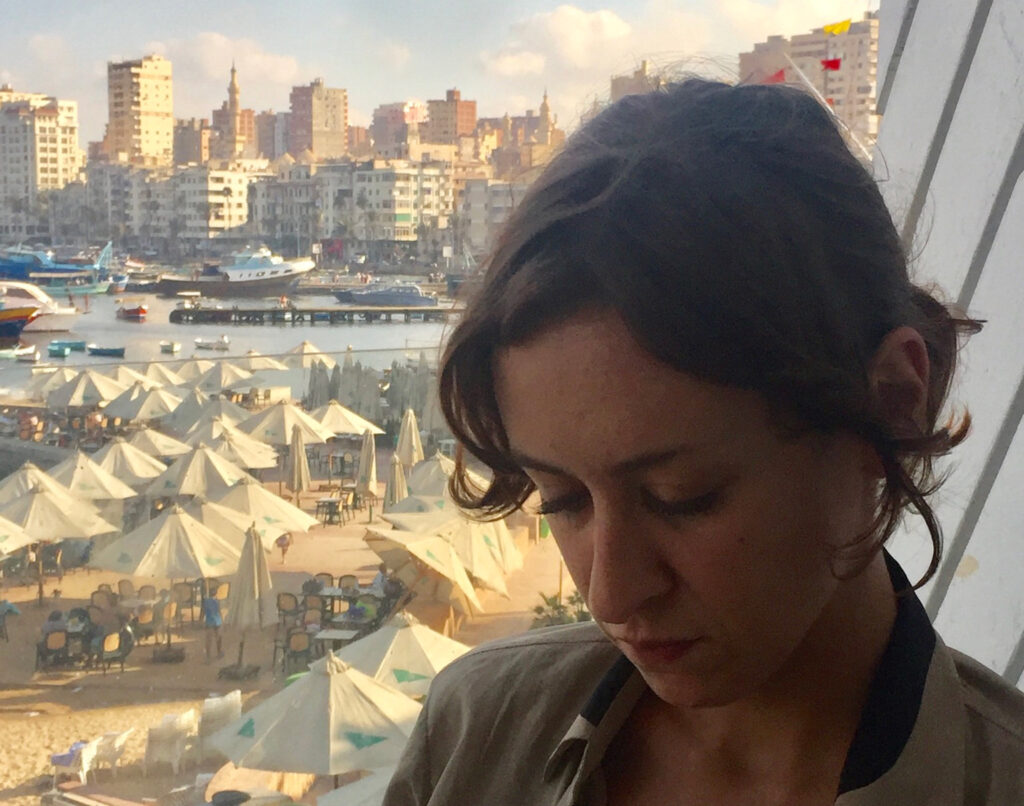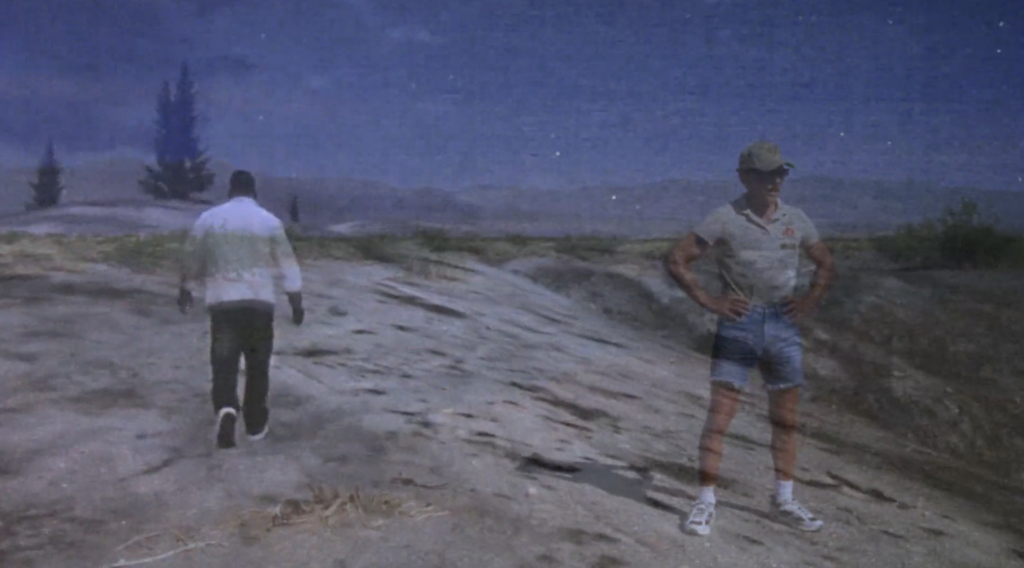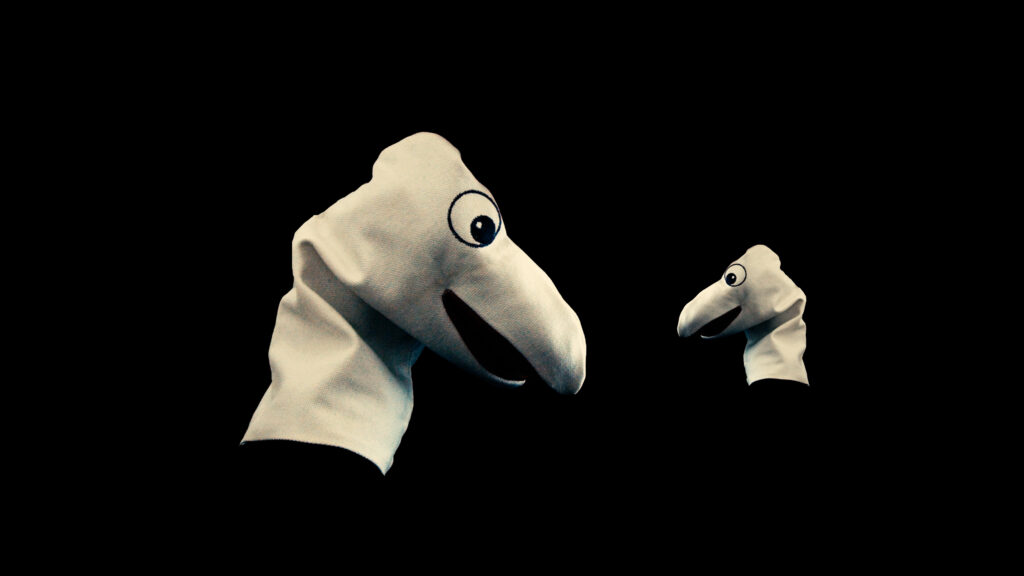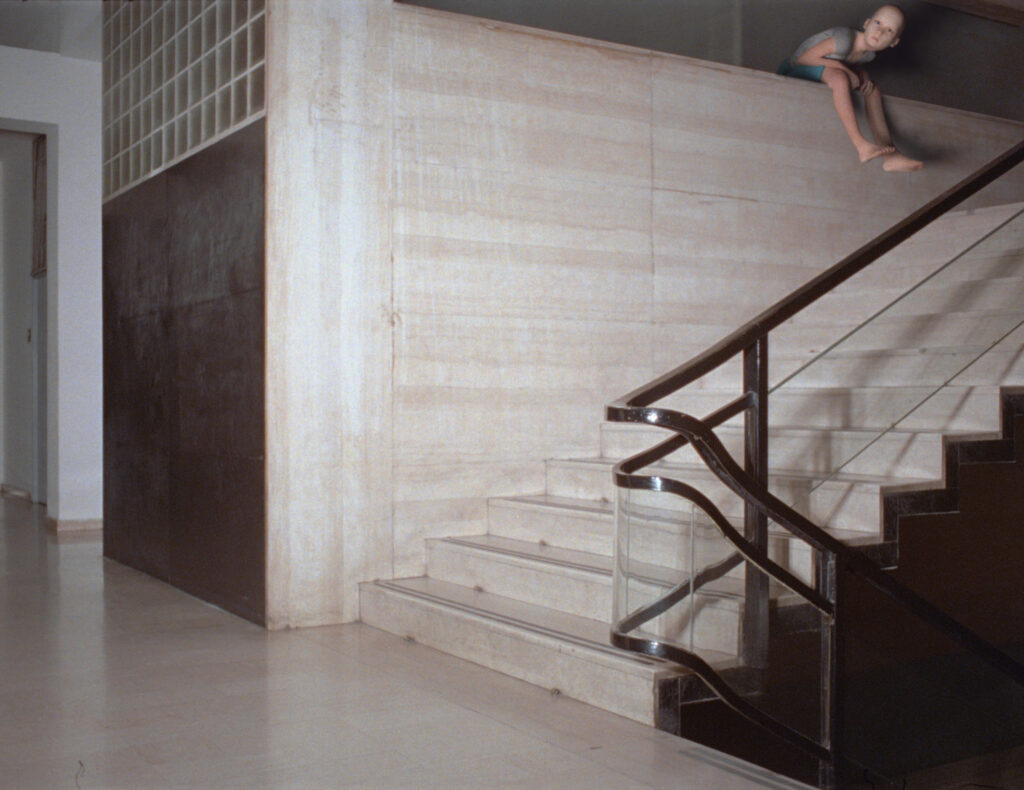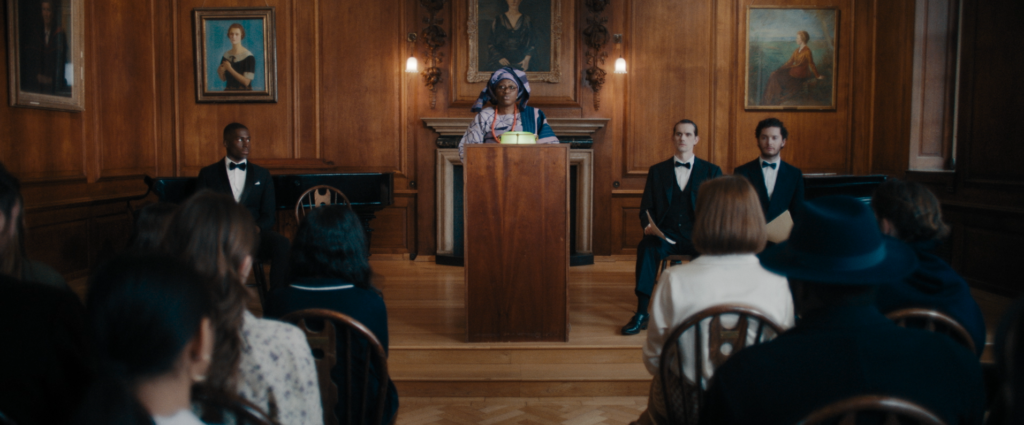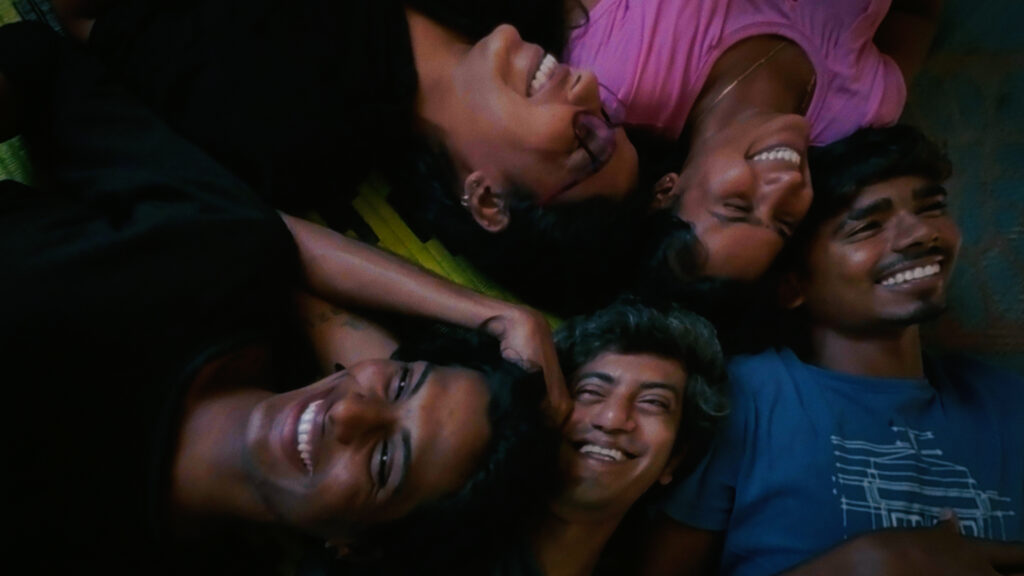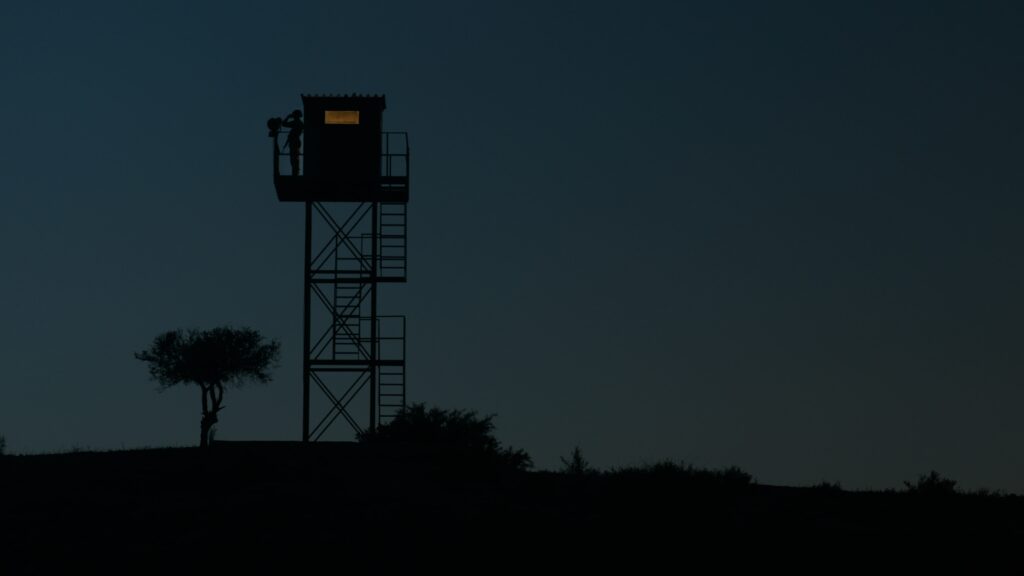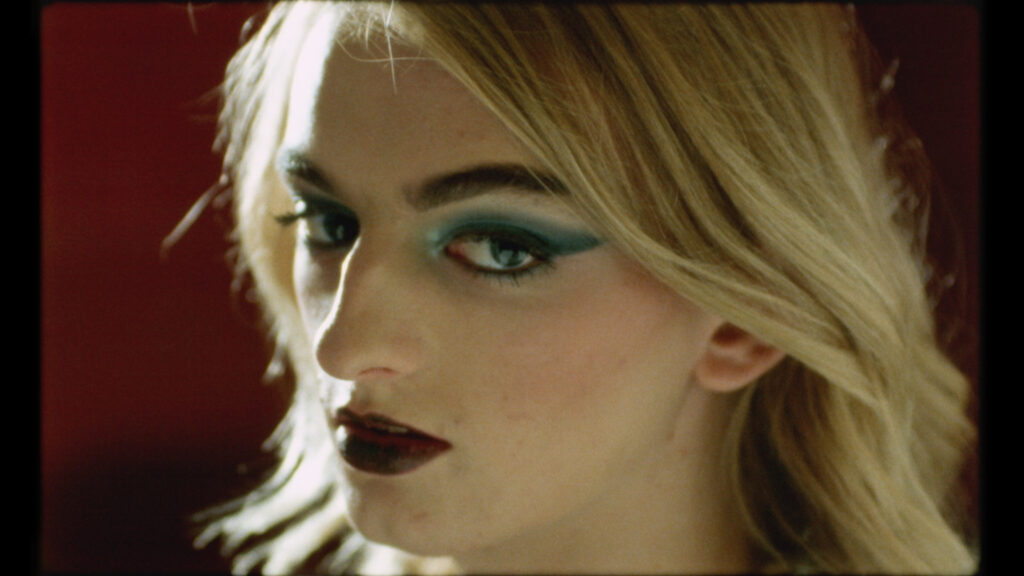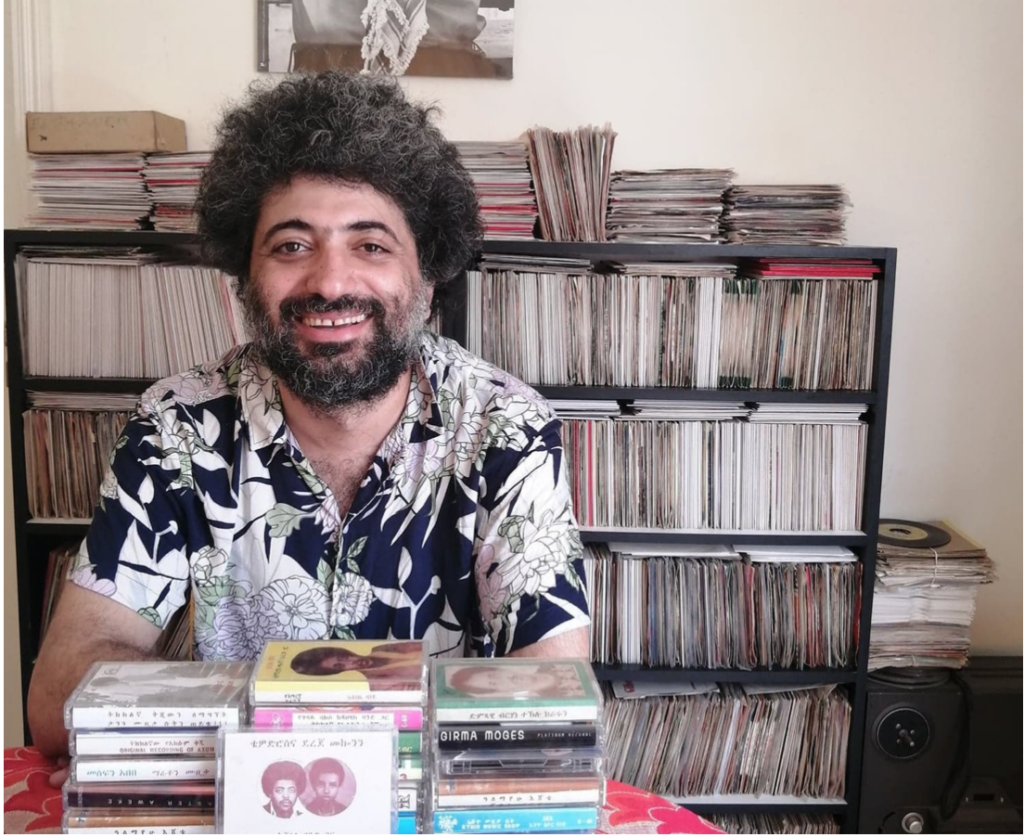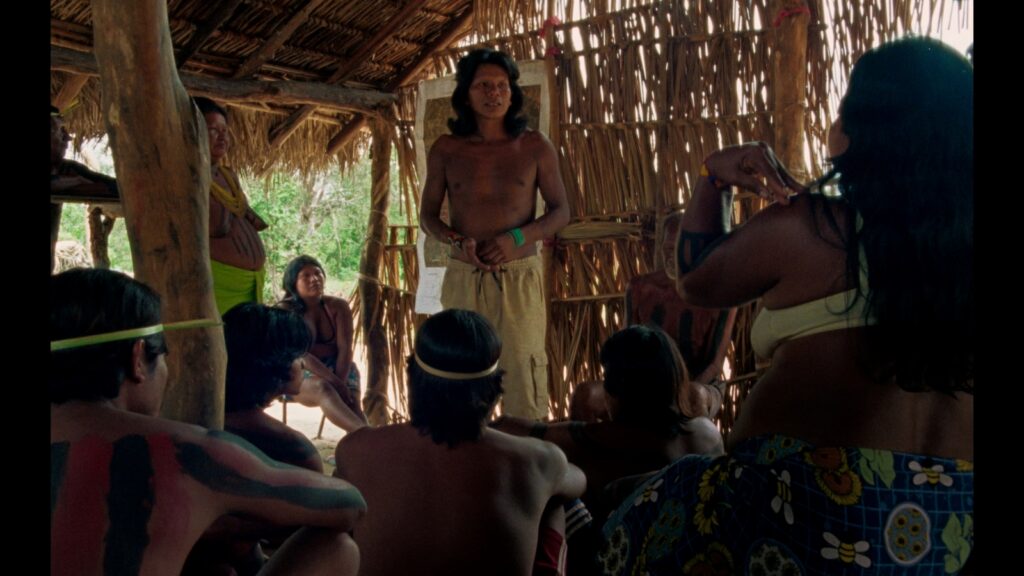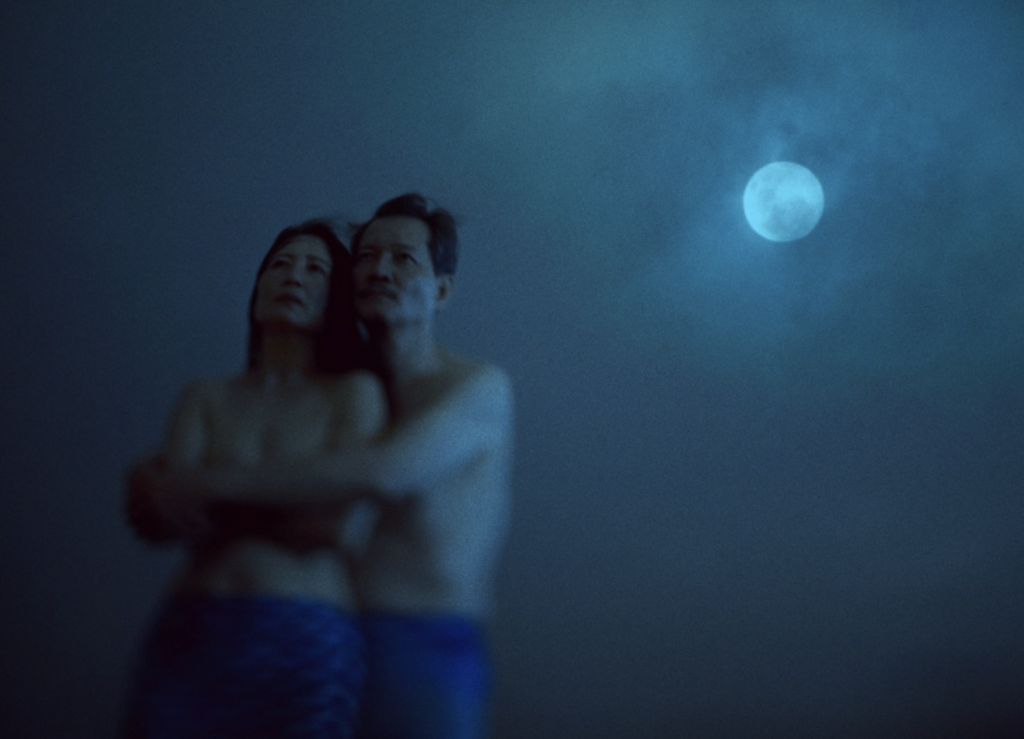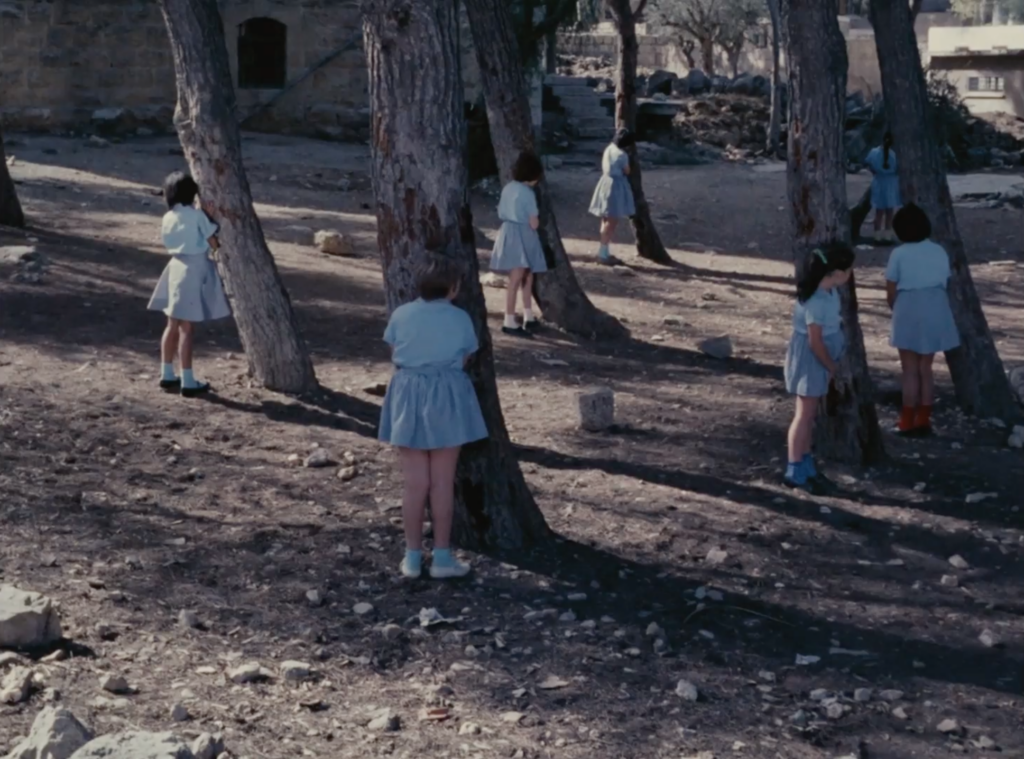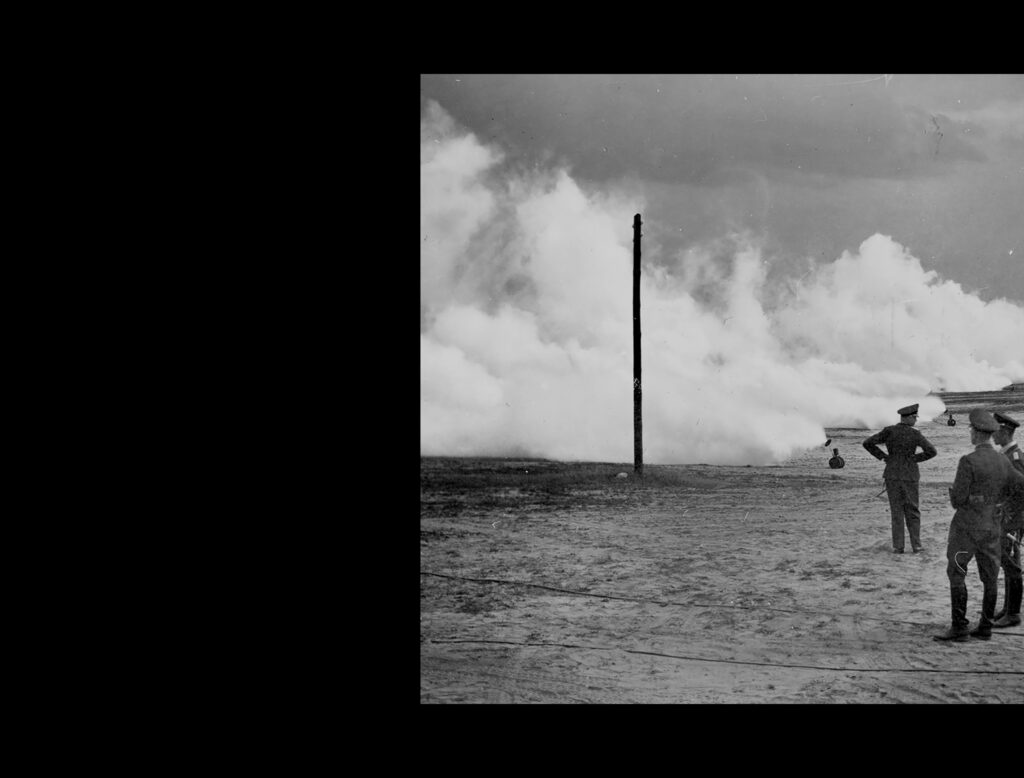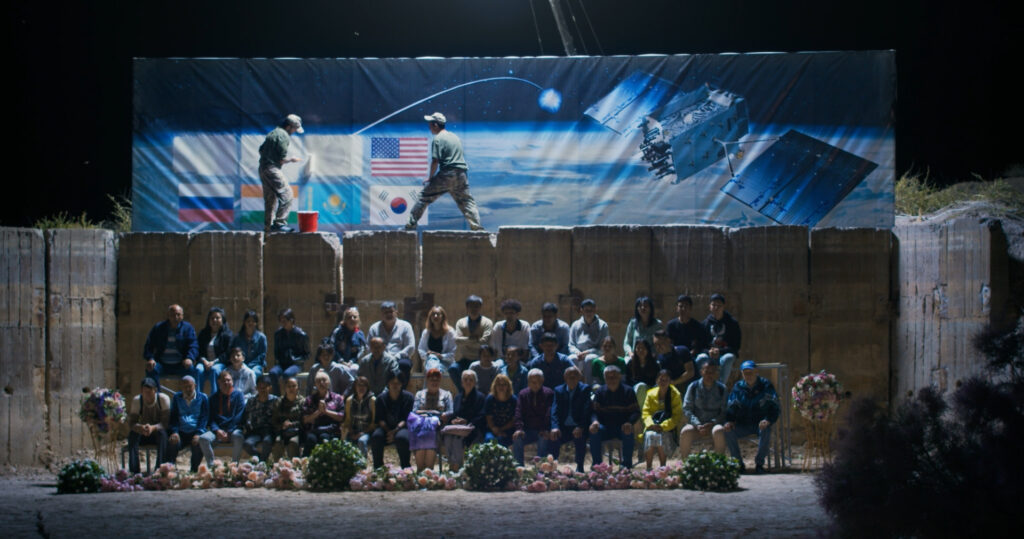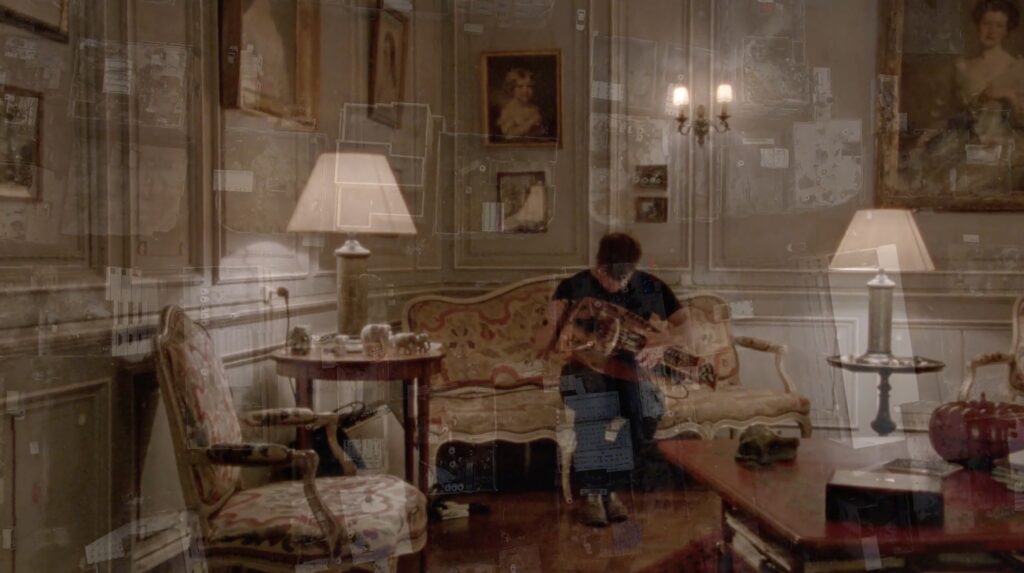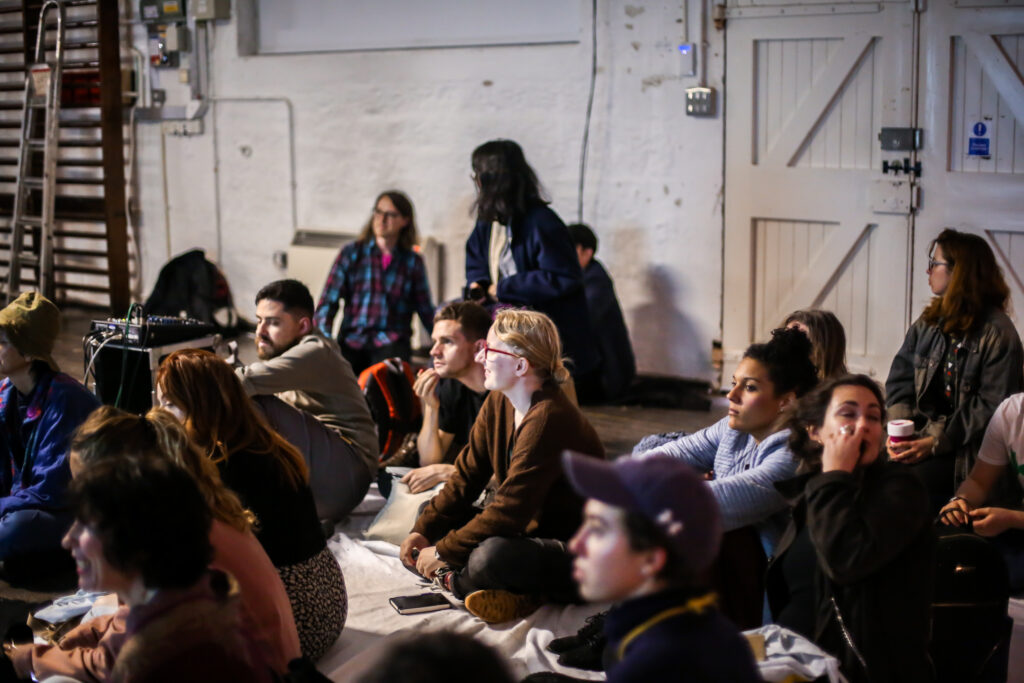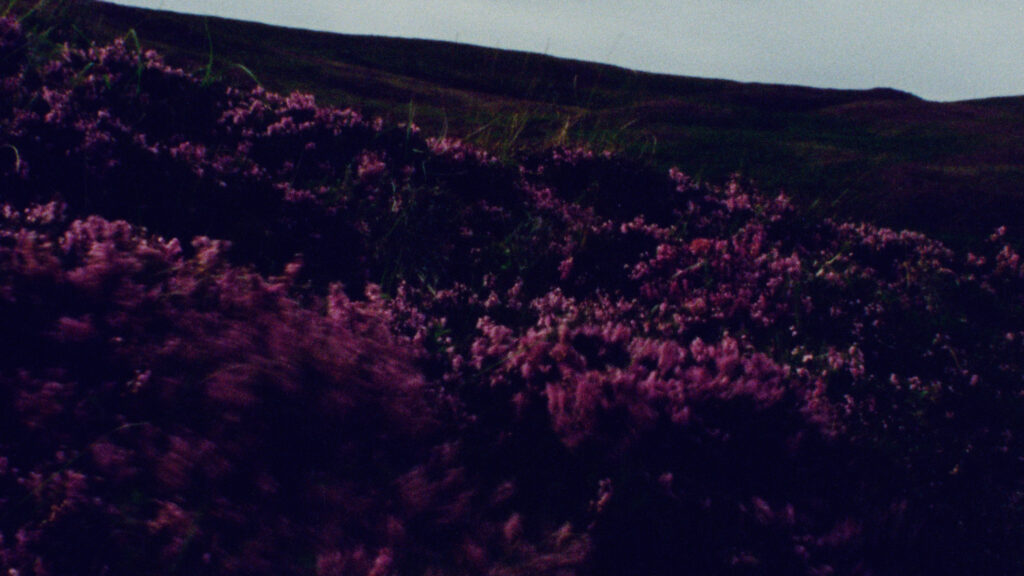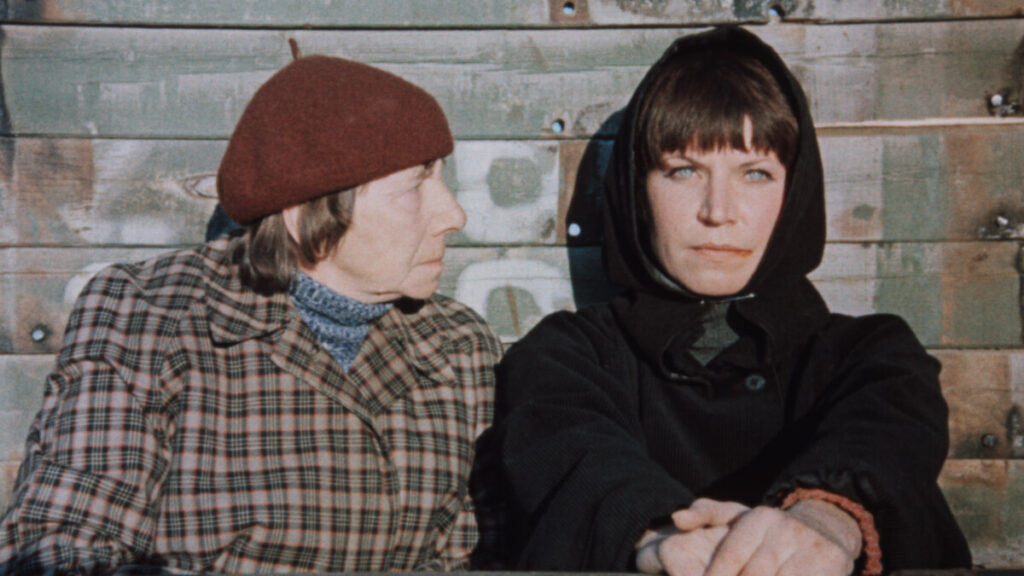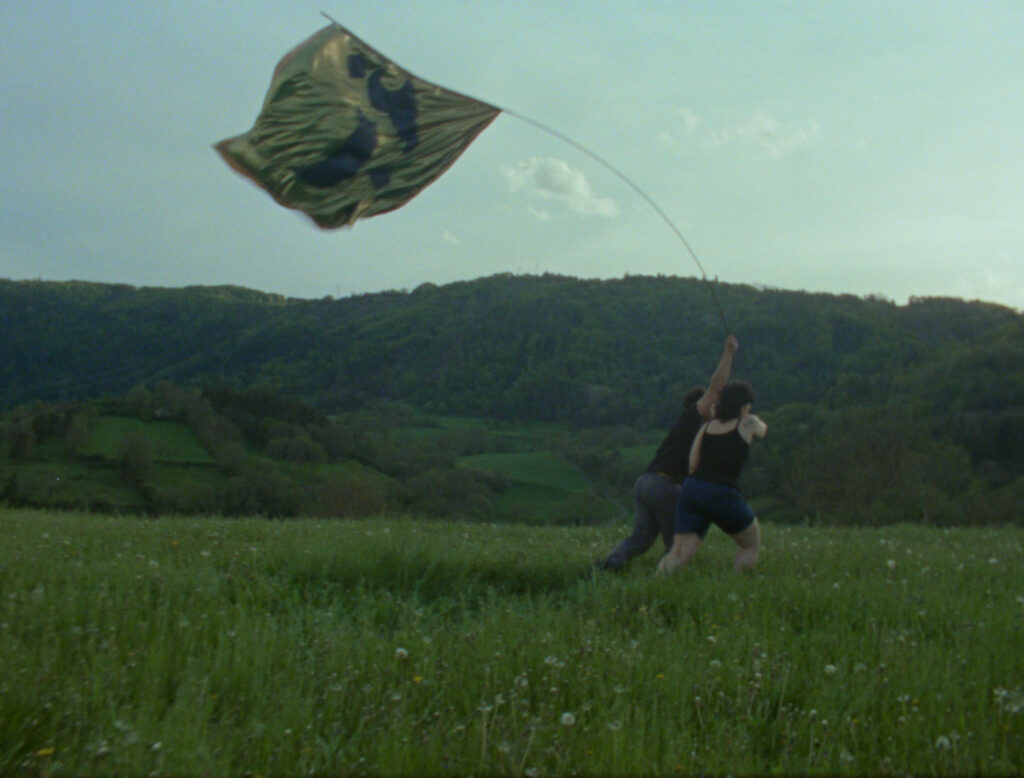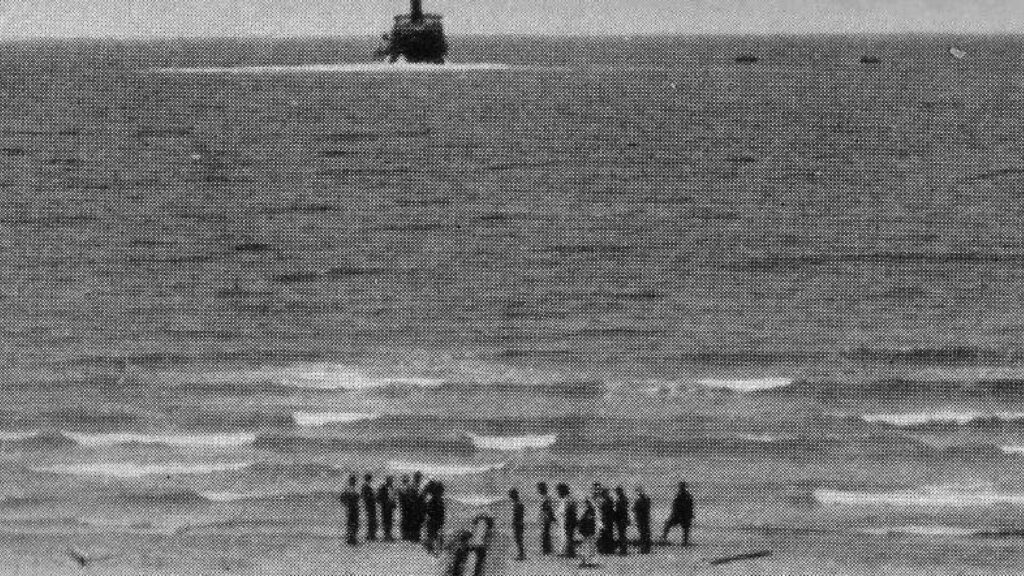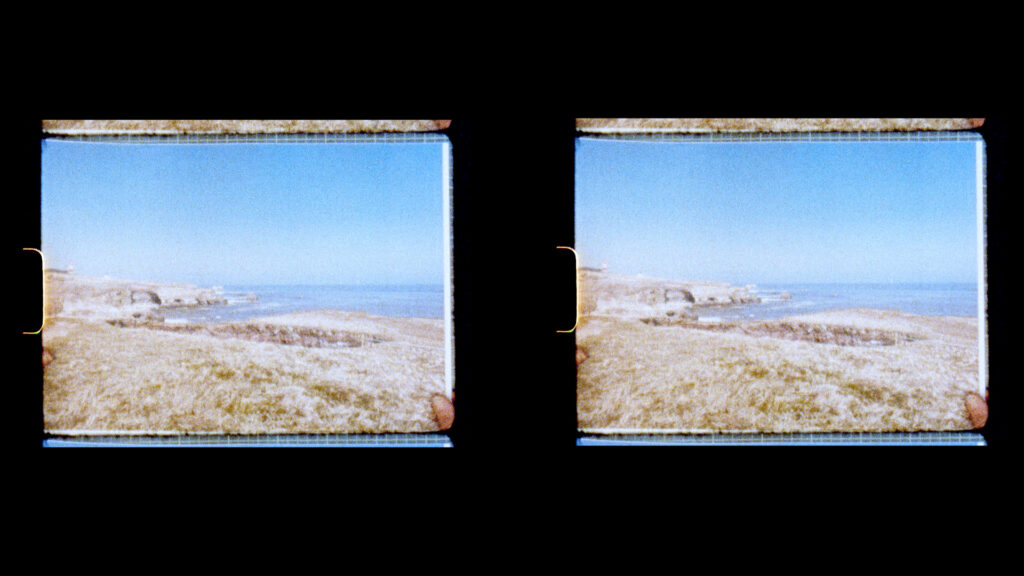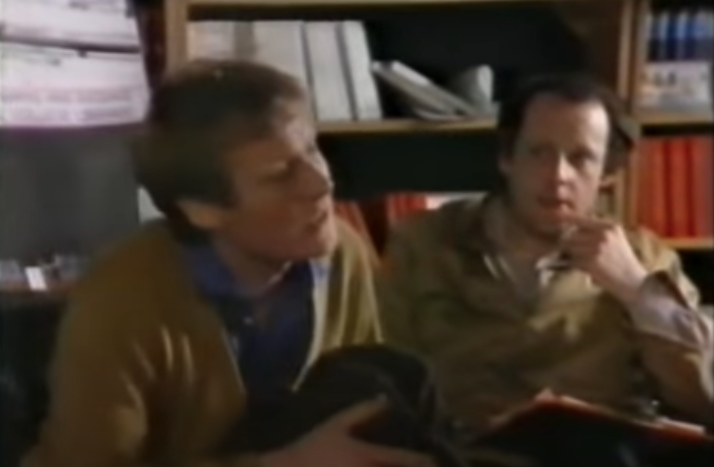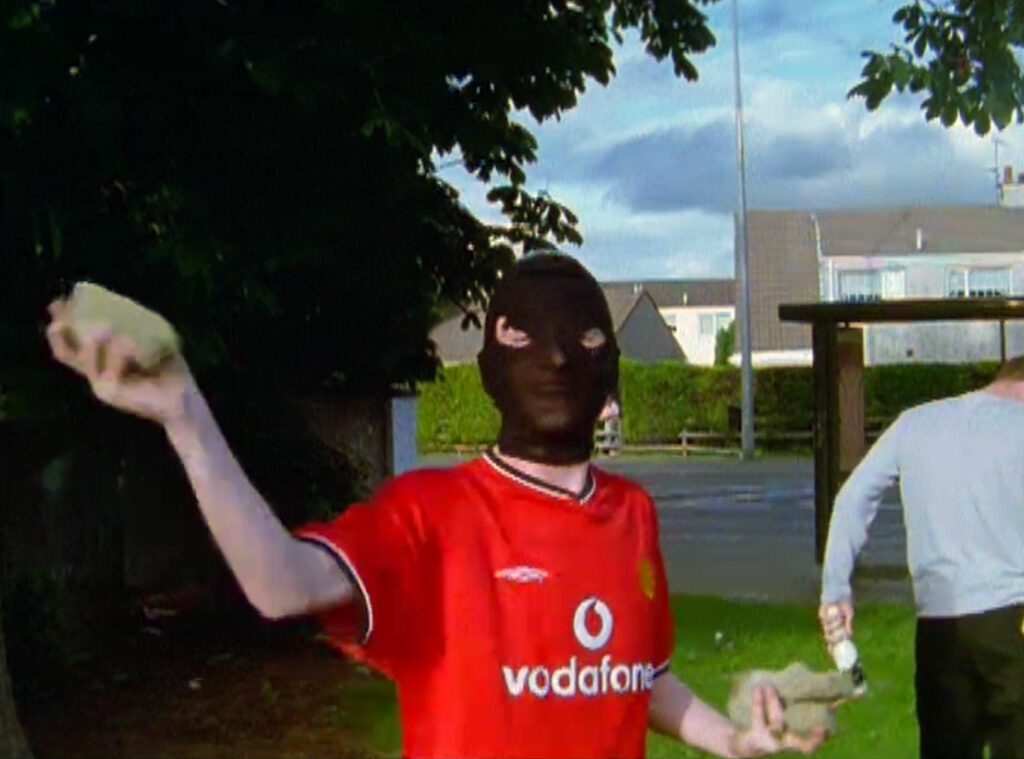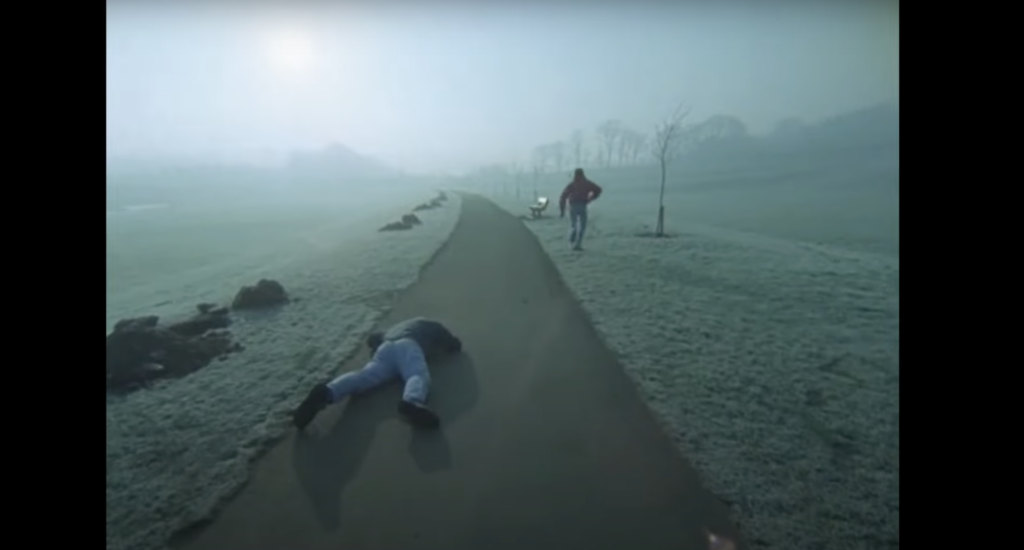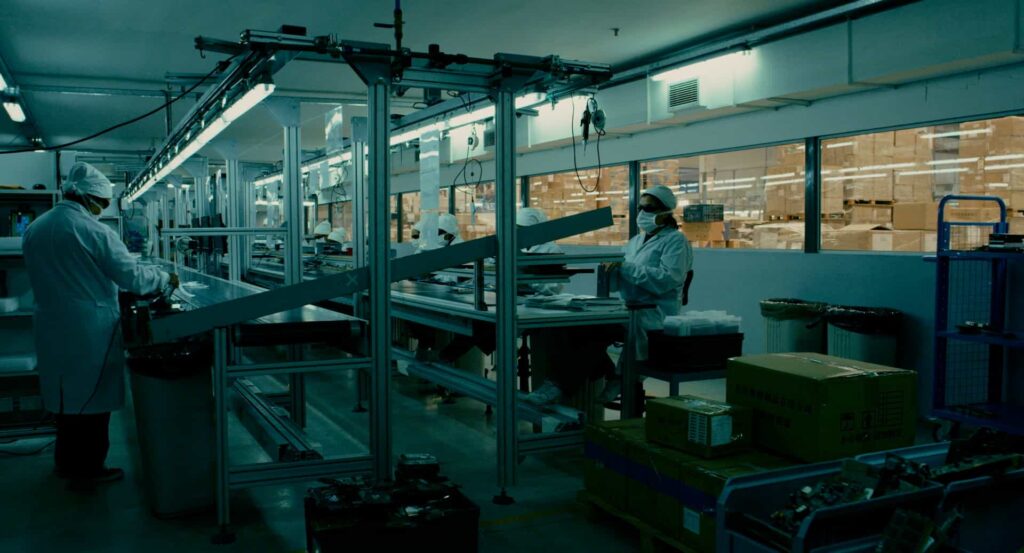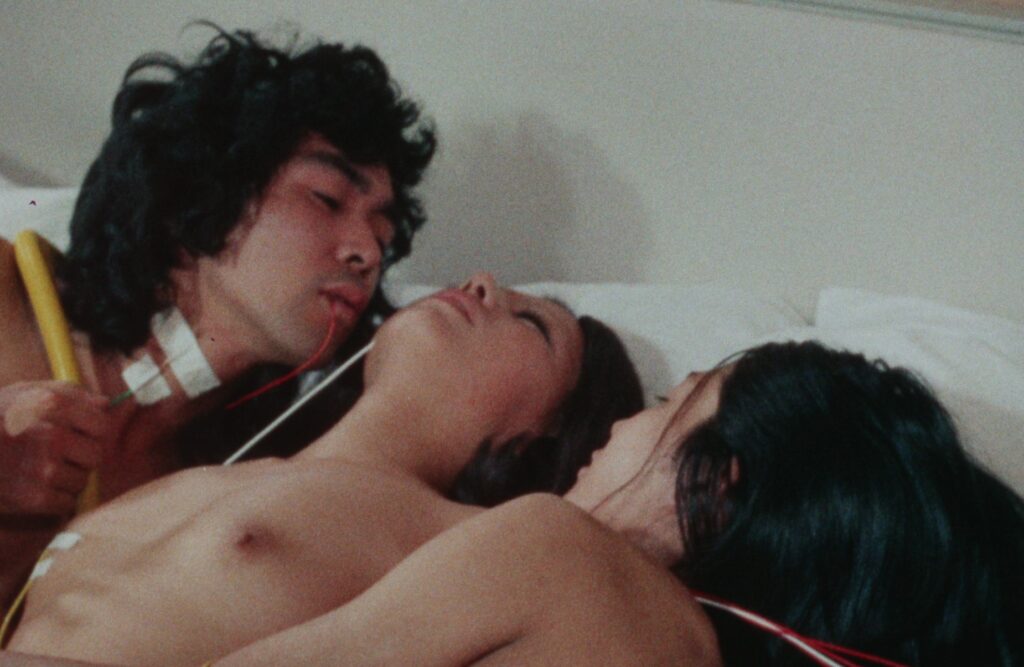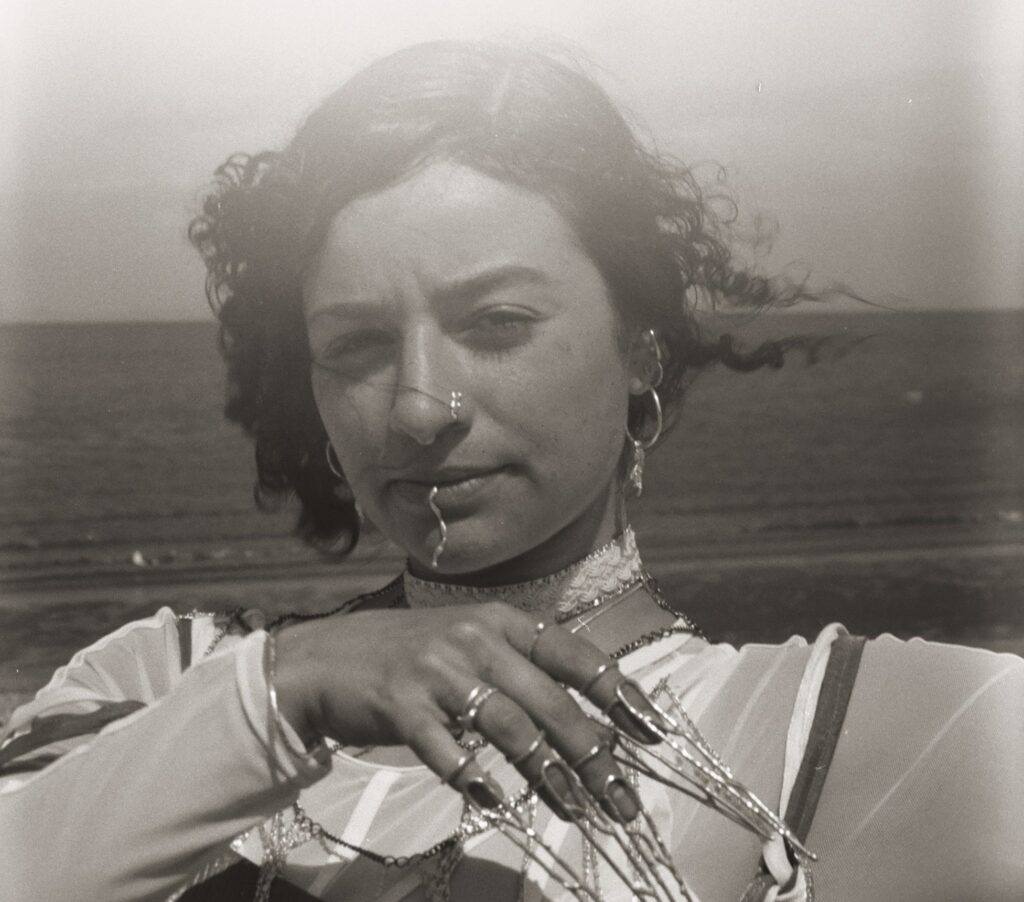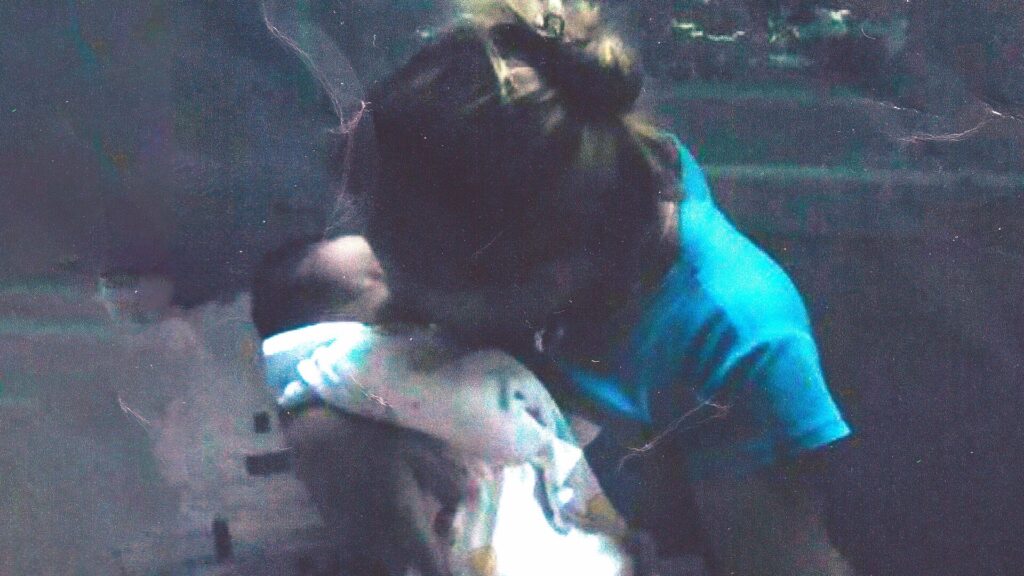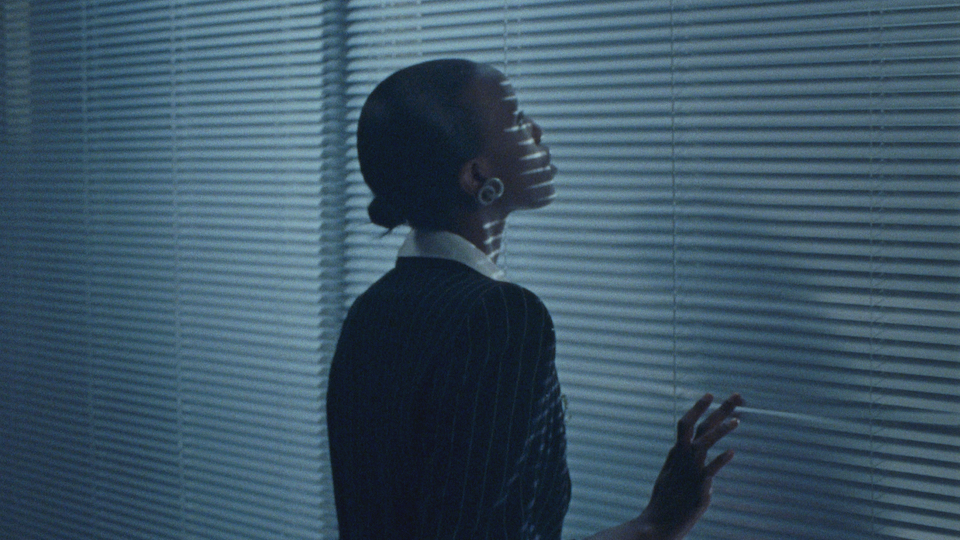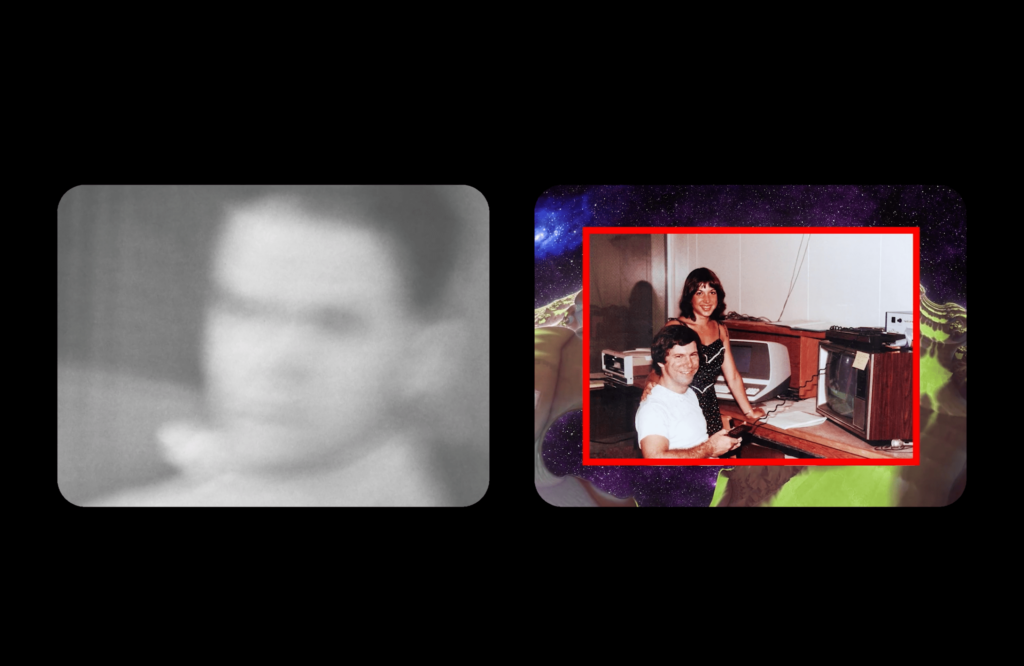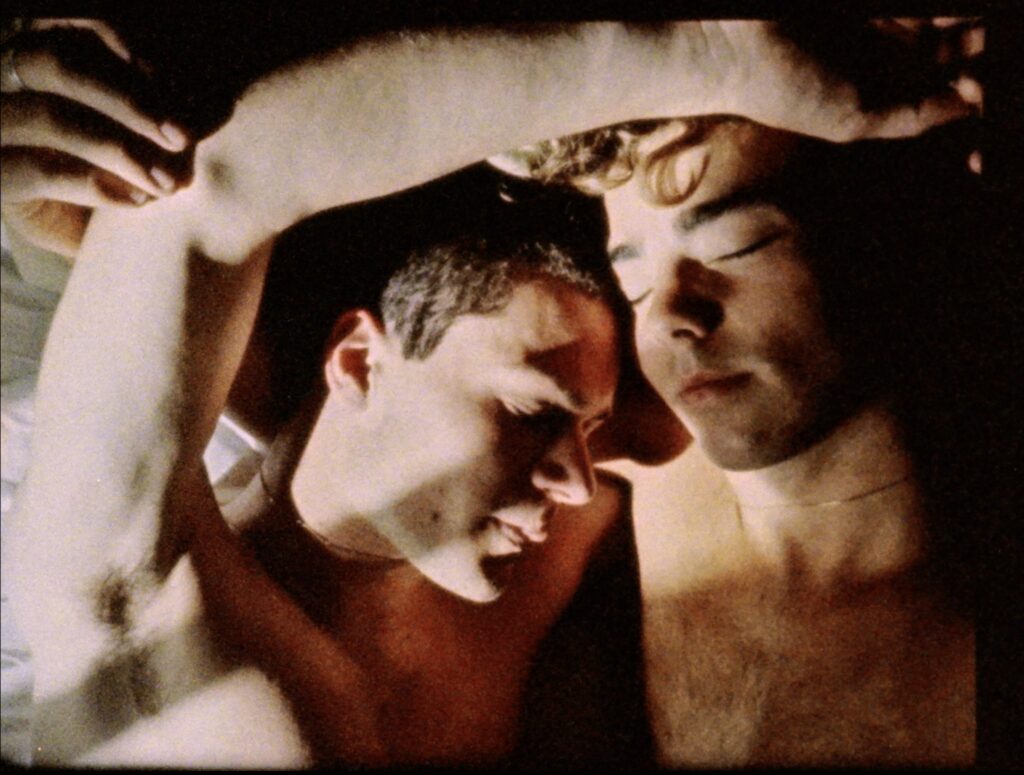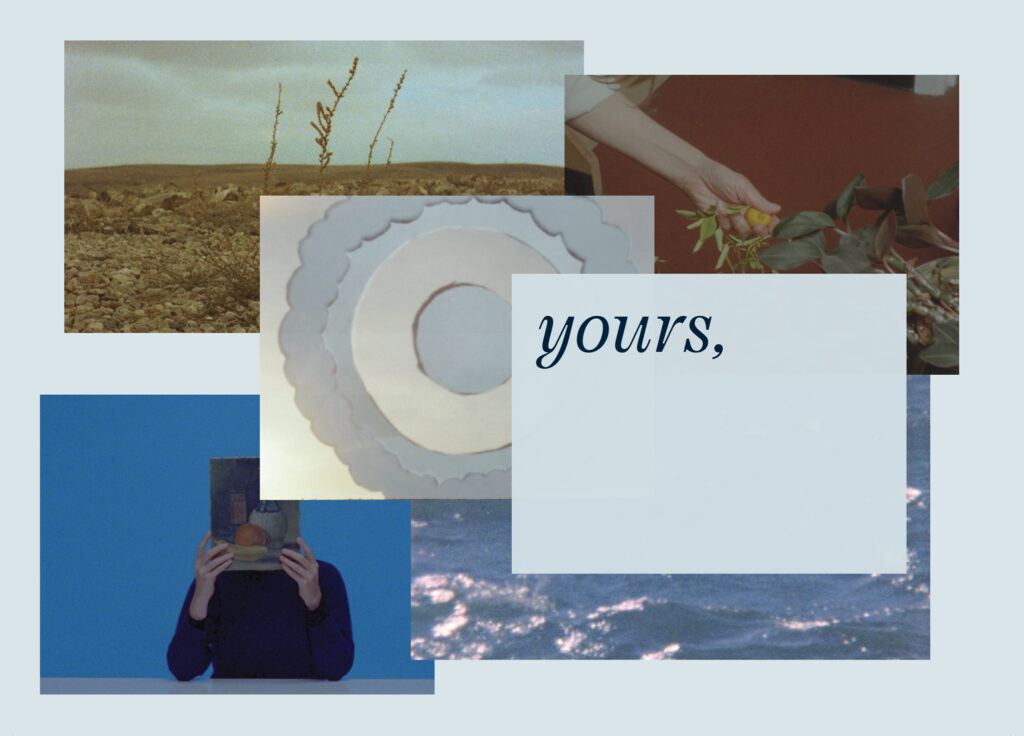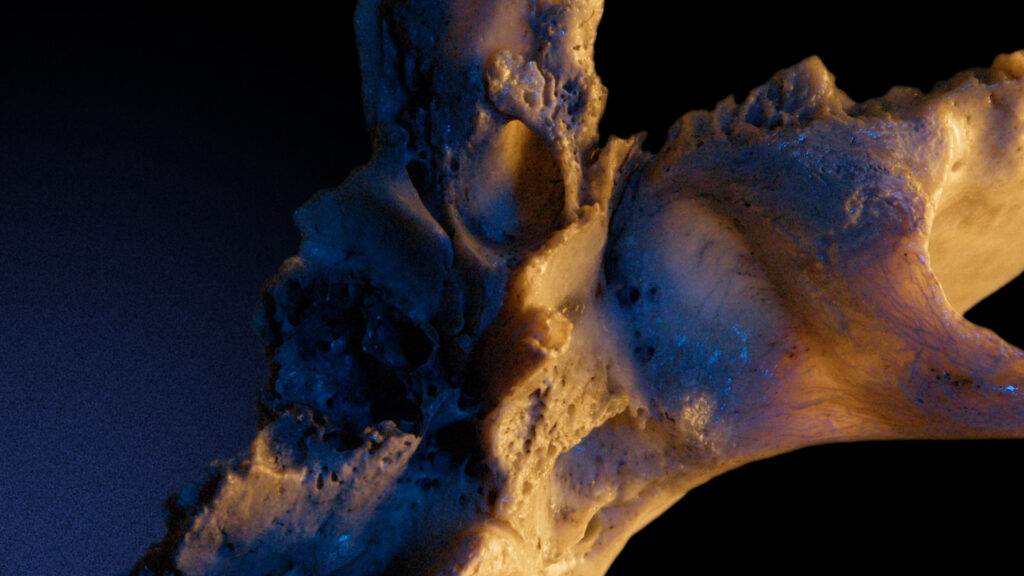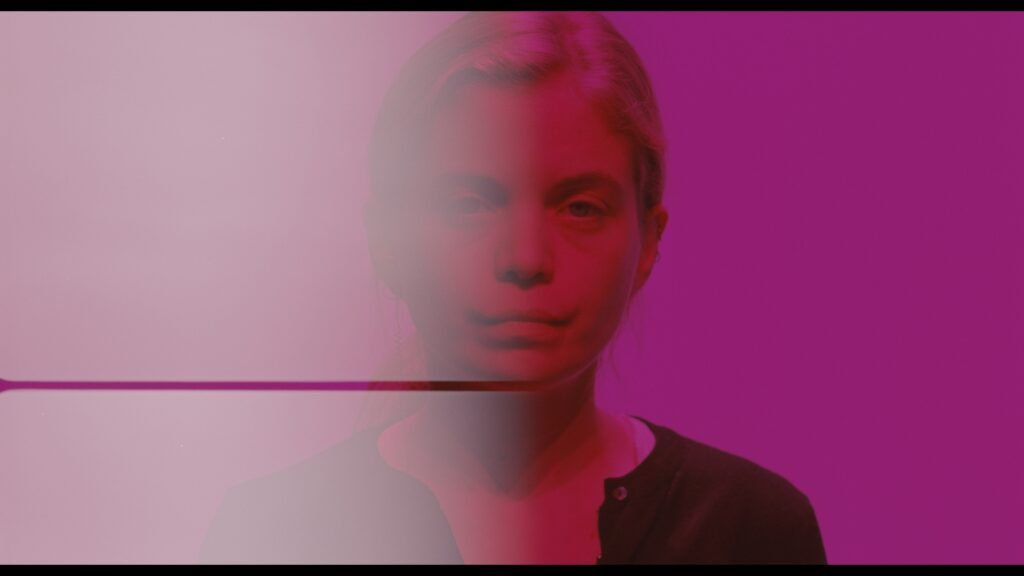Join us at Magdalene Fields Golf Club for a Friday night freak out with Junglehussi.
Unfolding over a single night’s journey into morning, Nightshift (1981) distills the comings and goings of a hotel foyer into an eerie series of moods.
The second feature from acclaimed master of Taiwan’s Second New Wave, Tsai Ming-liang, follows three characters sharing a seemingly empty Taipei apartment…
In the aftermath of a conspiracy-minded father’s sudden death, his daughter inherits his patent for an experimental healing device. Featuring archives from Callie Hernandez’s late father, Invention explores the process of grieving a complicated parent; the ‘fictions and fantasies that follow loss, allowing us to bear disappointment both as individuals and publics in times of national decline’
Melted into the Sun tells the story of Al-Muqanna (The Veiled One), an 8th-century mystic and revolutionary from Khorasan who fought for a just society – questioning land extraction, hierarchy and property. Al-Muqanna’s proto-socialist ideas and magical practices have reverberated throughout the history of Central Asia.
Two powerful, de-centering works from Eri Makihara that challenge the dominance of conventional cinematic forms and representations of disability.
Join BFI NETWORK partners BFI Doc Society and Film Hub North for a tea or coffee, followed by a roundtable conversation where you can ask us anything about our film funds and talent development programmes.
An evolving live video essay from Abiba Coulibaly exploring parallels, strains, convergences and ruptures in on-screen encounters between Black and Arab characters, and the off-screen realities from which they emerged.
Photographer and filmmaker Celeste Rojas Mugica confronts the political weight of images, revisiting her father’s photographic archive developed in exile in Latin America following activist involvement during the Pinochet dictatorship.
A song of the seasons in sign language, Makihara’s poetic documentary follows a group of deaf people who create visual musical space through motion and expression. A girl sings wind through the trees, a woman screams her soul to the sky, and a couple’s love ebbs with the rolling waves.
When a supernatural entity plagues a village community in war torn Northern Sri Lanka, a mother loses her son. Set in militarily occupied territory marked by 26 years of civil war, this hybrid docufiction made collaboratively, and secretly, with impacted Tamil communities lyrically examines the stories of missing people. A potent, elliptical protest poem moving with grace and purpose between disparate cinematic forms.
One of Eadweard Muybridge’s earliest contributions to the photographic image were stereographs commissioned by the U.S. Army, capturing their war against the Modoc Tribe in Northern California. These stereographs, many of which were staged, are revisited here through violent collisions of image and sound – generating entangled histories of visual technology, genocide and expropriation of Indigenous populations.
The first edition of Berwick Film & Media Arts Festival’s New Cinema Forum is an invitation to artists, filmmakers, critics and arts/film workers to consider new orientations to creating, exhibiting and working collectively. Offering practical ways to sustain and develop your practice and community, the NCF is a relaxed space to reflect and make connections ahead of our Opening Night film.
A film, installation, and exhibition by artist and filmmaker Harry Lawson, created in collaboration with young inner-city horse riders from Stepney Bank Stables in Newcastle. Reimagining Byker as the Wild West, the project blurs the line between fact and fiction, weaving together recontextualised iPhone footage shot by the riders, archival material from the North East Film Archive, and Lawson’s own cinematography.
Over 100 filmmakers and artists from around the world have formed Some Strings, an ensemble of unreleased filmic gestures rooted in Palestine, where poet and teacher Refaat Alareer was targeted by Israeli strikes along with seven members of his family.

just above the tear duct on each side
A critical look at the evolution of Irish psychiatric institutions across the 20th century, examining the confluence of carceral, therapeutic and socioeconomic incentives that determined their influence.
An incredible collection of over 2,500 three-minute videos where people discuss what love means to them. Beginning in 1977, the collection continues to expand today with contributions filmed at the 20th Berwick Film & Media Arts Festival 2025.
‘If every person on the planet could make a love tape, then you’d really know what it’s like to be human’ ~Wendy Clarke
Endless Love Tapes (United Kingdom, 2025) is a pilot project by Wendy Clarke (US) and Kim Coleman (UK). Artist Wendy Clarke’s participatory video project, Love Tapes – which she began in 1977 – is an incredible collection of over 2,500 three-minute videos where people discuss what love means to them.
Our next Vertical Screen Commission is What would it take to convince you that something was real? by Andrew Wilson. Catch the short film through the window of The Burr of Berwick on 22 Bridge Street 24hrs a day.
For the Berwick Bridge 400 celebrations come and say hello, at our market stand on Berwick Quayside! Our handy, portable film library will feature BFMAF curated films related to Berwick’s historic infrastructure and our commission Enceindre by Luke Fowler.
The Burr is a film library of stories made in and around Berwick – exploring its past and present, thinking of the future. Berwick residents & visitors can look through the films and watch them on demand. Have a chat with our staff who’ll show you something that interests you, if you’re not sure!
The library is an ongoing project, year-round it will pop up in community spaces in Berwick and host The Burr of Berwick events.
We hope the library triggers conversations and gets the ideas flowing. Maybe you know something about Berwick that we don’t!
What film would you like to see made / or to make yourself in Berwick? Could your interests, or work fuel a filmmaking discovery?
A radiant work of trans friendship and joy unfolds over the course of a day as Aisha bids farewell to her friends in Belo Horizonte. Queer and trans actors play versions of themselves, expressing their individual and collective coming-of-age through the intimacy and wonder of everyday encounters. All That You Could Be is an affectionate portrait of chosen family and of the many forms of love that nurture new beginnings.
Past and present infuse each other with strange energy across films that capture people and places at the borders of transformation. As the sun sets on ancient ruins a shutter opens and closes, and a light in the distance reflects on the glass of a soldier’s lonely watchtower.
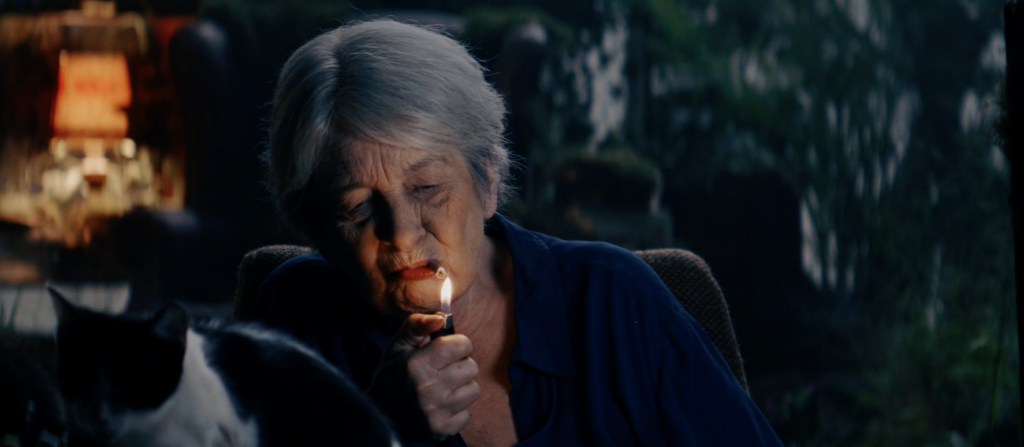
Isabelle Stengers: Building hope on the edge of the abyss
A mysterious house and a magical forest are staging for a playful portrait of Belgian philosopher Isabelle Stengers. Seated amongst verdant overgrowth, dusty ephemera and the occasional stray cat, Stengers expands on the ideas that have shaped her life and work. Intimate and pleasurable, the film delivers an empowering and hopeful message about how to survive in a world of ruins and the potential of collective action.
A shopping list, a wildfire, the urban sprawl and a modern-day pirate. Soft collisions of memory and dream abound across films that trace the sometimes imperceptible impressions that capitalism leaves on our everyday lives.
Born stateless and of Palestinian heritage, Basma al-Sharif’s work explores cyclical political histories and conflicts. In films and installations that move backward and forward in history, between place and non-place, she confronts the legacy of colonialism through satirical, immersive, and lyrical works.
Join us for a special in focus conversation with Basma al-Sharif, BFMAF24 Filmmaker in Focus led by Dr Viviane Saglier, lecturer in Film Studies at the University of St. Andrews.
The second of two screening programmes animating the work of Basma al-Sharif, BFMAF24 Filmmaker in Focus.
Born stateless and of Palestinian heritage, her work explores cyclical political histories and conflicts. In films and installations that move backward and forward in history, between place and non-place, she confronts the legacy of colonialism through satirical, immersive, and lyrical works.
Anti-colonial intellectuals, artists, and activists like Funmilayo Ransome-Kuti, Kwame Nkrumah, and George Padmore were all in the heart of Empire – London – in 1947. They were imagining a world after colonialism, but did they meet? And if they all did, what did they discuss, what did they conjure?
A Radical Duet is a dual timeline hybrid film about two women of different generations who come together to put their fervour and imagination into writing a revolutionary play.
Audacious and sprawling. Borderless and liberatory. Eduardo William’s follow-up to The Human Surge (2016) (there is no part 2) is a freeform odyssey of sociality and technology shot entirely on a 360-degree camera.
“Unflinching about global woes of wealth disparity, environmental catastrophe, and exhaustion, [Williams] imagines alternative ways of living, rethinking the vast possibilities of the world through new practices of seeing, hearing, and being together.” -Andréa Picard
An open, drop-in conversation inviting responses to the Festival’s programme of films considering what and who we feel responsible for, where a sense of duty lies, and whether this is individual or collectively shared?
With the King’s Own Scottish Borderers Regiment Association, who will be bringing their own converted cine film material, alongside the Northumberland Archives footage of border regiments.
Run Time
Meet Mamántula, the boy of everyone’s dreams… and a giant, cross-dressing spider-human with an appetite for revenge and sperm. In an alternate Berlin of brutalist saunas, sepulchral subway corridors and hardboiled detectives, he threads a silken trap. His dream: to cocoon the planet, victim by victim, in his sticky embrace. Will a couple of lovebirds with police badges stop him? Or will the gay community have to step in and take the law into their own hands?
Join us for an after-hours set from the co-founder of the Beirut Groove Collective, and host of monthly NTS radio show Beirut Daze. Ernesto Chahoud is internationally renowned DJ, compiler and music researcher from Beirut who aims to bring the rarest and sometimes strangest records to people’s ears.
Run Time
An intimate, multifaceted portrait of the Krahô people indigenous to northeastern Brazil. Made in close collaboration with the community, The Buriti Flower sketches the rhythms, dreams and ways of being connecting families working to protect their land from the cyclical violence of encroaching settlements. Blending observational documentary and staged scenes, it depicts the flow of life on a continuum of ever-replenishing strength and resistance.
Nelson Yeo’s beautifully restrained debut feature portrays a complex love triangle of fantasy and desire between three old friends unexpectedly reunited in their middle age. Owing something to the dreamy poetics of Apichatpong Weerasethakul, a journey rooted in the real gently blooms into a moving and unexpected reflection on the porous boundaries between worlds; touching on issues of ageing, ecological collapse, mature sexuality, and mythology.
A fog clears, revealing new forms of camouflage. From endless desert to outer space, cameras and landscapes reflect each other as vessels for ambiguous and volatile imaginaries playing out beyond our control.
Basma al-Sharif’s first feature film is an experimental homage to the Gaza Strip and to the possibility of hope against hopelessness. Departing from the ancient symbol of the ouroboros – a snake eating its own tail – the film follows a man moving through different landscapes in search of a past lover. A multilingual journey through time and space reflecting on recurrent patterns of destruction and regeneration, representation and erasure.
An informal conversation for critics, writers, and anyone interested in the sustainability of arts writing and publishing in various contexts. We invite Lesley Guy, Kate Liston (Corridor8) and Lyn Hagan (The Journal of Discarded Daydreams) to an open conversation considering how we respond to/reflect on the arts, and how the contexts that stifle might exist in tension with the contexts that nourish. What are the material and conceptual frameworks for sustainable arts publishing – and are these applicable to other mediums, forms and contexts?
barrunto is a feature length speculative fiction taking place in a future of the past, in a present, ruptured now. It is an intimate exploration of environmental grief and resistance in shifting landscapes of loss, from the streets of Puerto Rico to sites of nuclear contamination and military occupation in Scotland, from the bottom of the ocean to the planet Uranus. Through digital, archival and hand-processed 16mm film, barrunto sensorially translates bodily unrest, forecasts, or omens via signals sensed in the environment.
Marking the centenary of her birth, BFMAF presents a new restoration of the seventh and final feature of Leida Laius, one of Estonia’s most distinctive directors. The tenacious Valentina, recently freed from prison in Soviet Russia, heads back to her native Estonia on a quest to find her son Jüri. A Stolen Meeting touches on powerful themes of migration, rootlessness, reconciliation and motherhood at the end of the Soviet Era.
Two films set in liminal spaces of exile. In the wake of dispossession, when dreams are deferred and memories bring pain, small acts of collective speaking generate new threads of resistance, liberation, and hope.
Drop in between 12:00 – 17:00 and respond to material in The Burr’s film library selected by artist Kate Liston. Use prompts devised to uncover new meaning in films and artefacts relating to the region’s historic archives of mining, and strategies Kate uses in her new film project Sinkhole.
Run Time
Maria Fusco is a working-class writer who grew up during the Troubles in Belfast. This Propositions event clashes together two BBC TV plays and an artist’s film to explore the ongoing legacies of censorship, voice and socio-cultural velocity with particular reference to the BBC’s broadcasting ban of 1988 to 1994 of Northern Irish (largely Nationalist) politicians.
The event title is a quote from Reginald Maudling, Secretary of State for Northern Ireland, 1970-72
A twentysomething in Argentina loses his warehouse job. Boys in Maputo, Mozambique, perform half-hearted sex acts in front of a webcam, and a woman in the Philippines assembles electronics in a small factory. The Human Surge is hybrid cinema at its most playful and electrifying – a docufictional exploration of labour and the global digital economy, and an almost spiritual reflection on our collective relationship to the multiple realities produced by imaging technologies.
An open, drop-in conversation inviting responses to the Festival’s programme of films, considering environmental grief, care and survival strategies in difficult times – and the flexible binary between who/what and how/where we nurture.
Join us and the Southern Uplands Partnership in an expansive conversation.
A pair of star crossed platonic lovers take flight from society in Isao Fujisawa’s surrealist road trip through 70s Japan. Channelling the avant-garde spirit of the American New Wave, Bye, Bye Love establishes a dazzling universe of psychedelic poetics to narrate Utamaro and Giko’s search for freedom and liberation in the free love era. Nuanced depictions of gender fluidity and queer relationships mark it out as a seldom-seen gem of countercultural cinema
Join us for an after-hours set from multidisciplinary artist and DJ, Alliyah Enyo. As a DJ, Alliyah’s sets build on a meditative approach to sound, queering ancient mythology and folklore whilst centring the harmonies of ambient dance music allongside the polyrhythms of outernational influences. She has further honed her craft as resident DJ at EXIT, a late-night DIY space in Glasgow, where she incorporates choral vocals and ethereal ambient into club atmospheres of psychedelic and percussive leftfield dance music.
Run Time
Nadia El Fani’s pre-Jasmin Revolution espionage fable follows our hero Kalt as she hijacks the airwaves to broadcast political messages from a remote mountain village in Tunisia. Things quickly turn into a sexually charged game of cat-and-mouse with French intelligence officer Julia as the pair struggle with oppositional missions. Brimming with queer and revolutionary potential Bedwin Hacker is keenly critical of the security apparatus of the French state and its targeting of immigrant communities.
A raw, moving portrait of motherhood and mutual aid in a Chilean prison, captured by inmates on banned mobile phones. Testimonies from mothers serving long sentences shape a collaborative narrative touching on ways in which friendship, intimacy, resilience and community bloom in conditions of impossibility. Malqueridas is a generative example of the documentary form and a powerful contribution towards the case for abolition.
When markets crash, connections fail and logic boards burn out, what becomes of our augmented selves? A programme of films reflecting the impact of technologies on human identity, consciousness, love and society under late capitalism.
Five new films collaboratively combined to form a single work responding to Belgian filmmaker Chantal Akerman’s luminous News From Home (1976). Artists Sirah Foighel Brutmann and Eitan Efrat, Eva Giolo, Rebecca Jane Arthur, Katja Mater, and Maaike Neuville each engage in their own way with the epistolary device of Akerman’s film, as well as recurrent themes of alienation, distance and the mother-daughter relationship.
When freedom is at stake, who has the right to speak? Two films troubling the politics and poetics of language in public life; how it might be bent and shaped towards liberation of our individual and collective selves.


